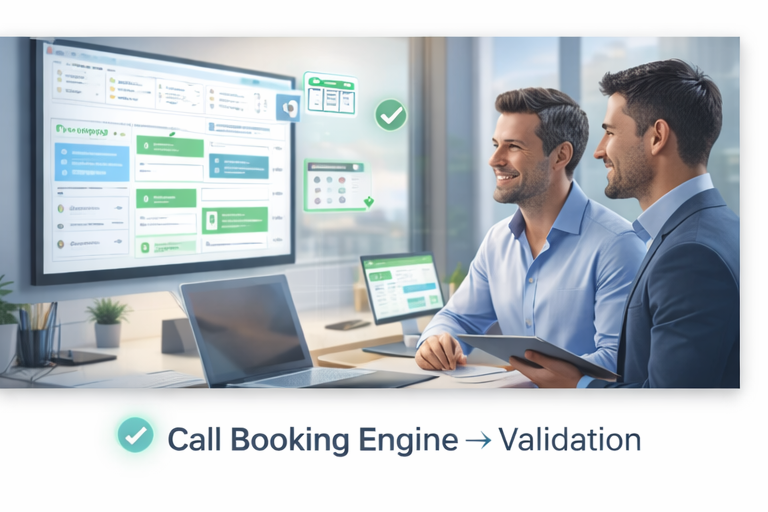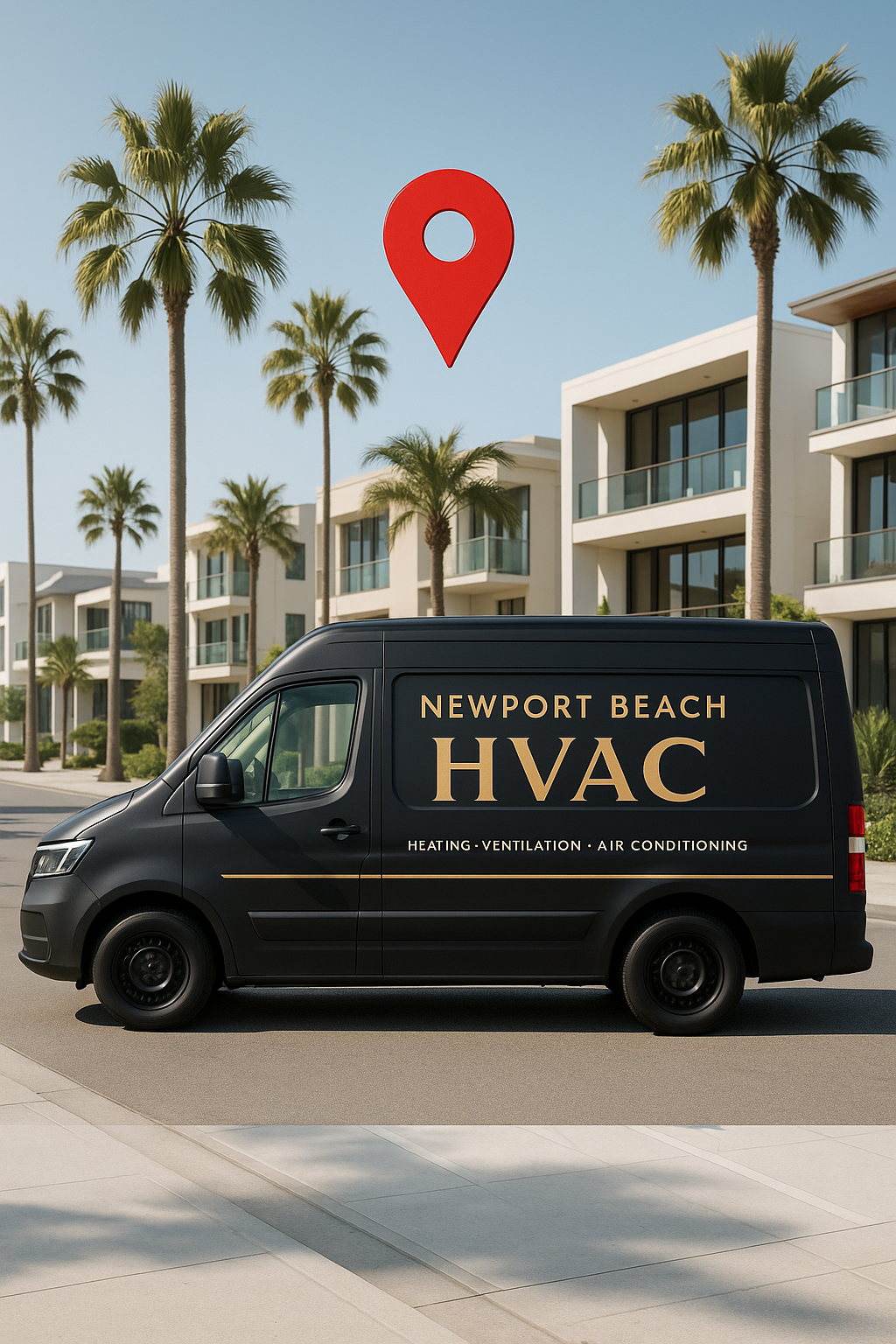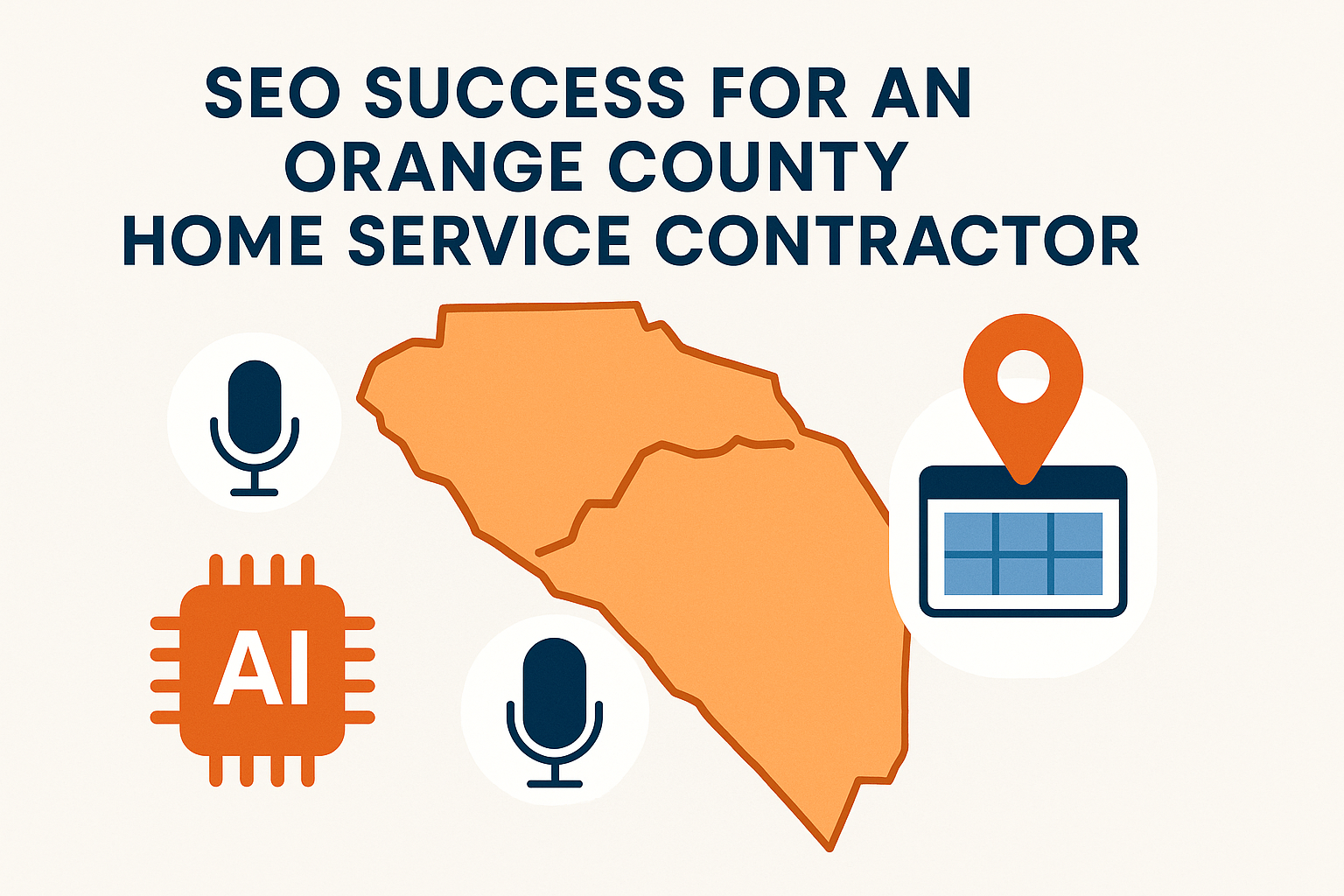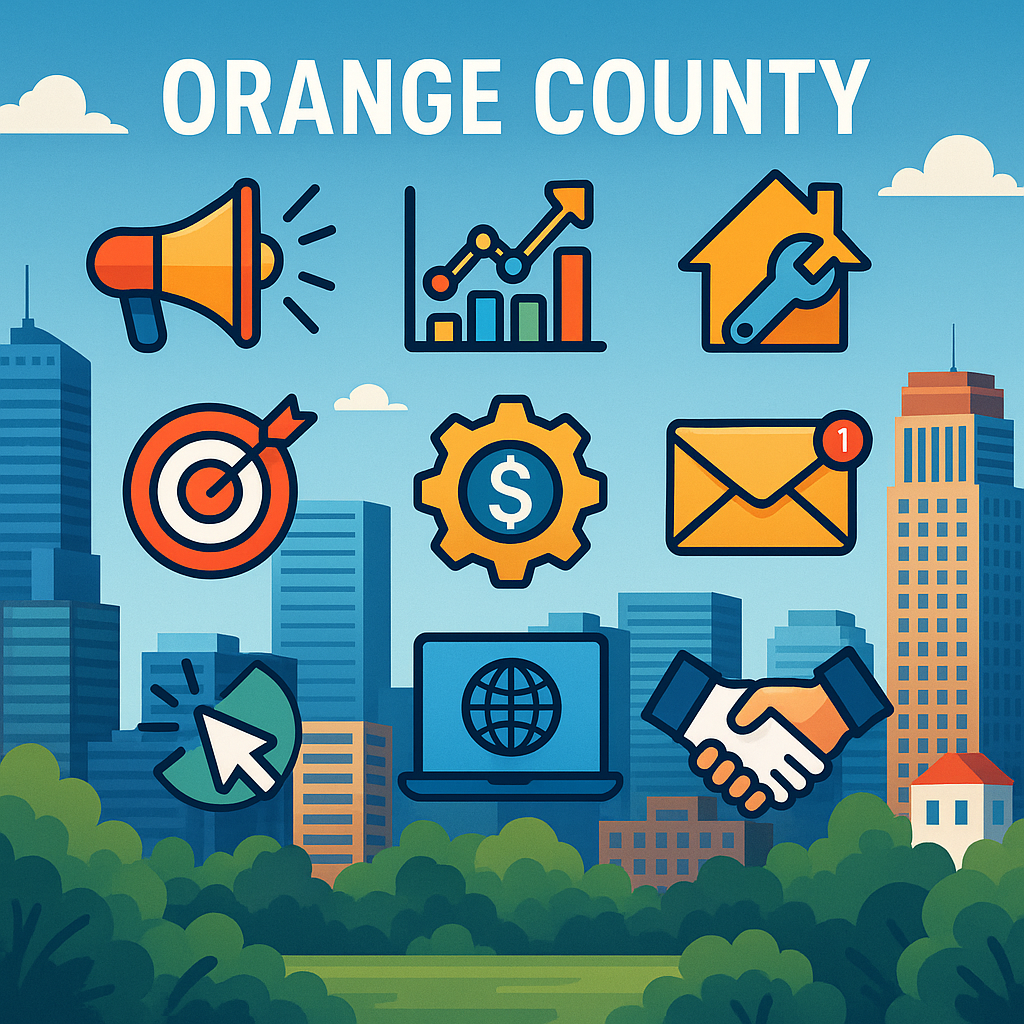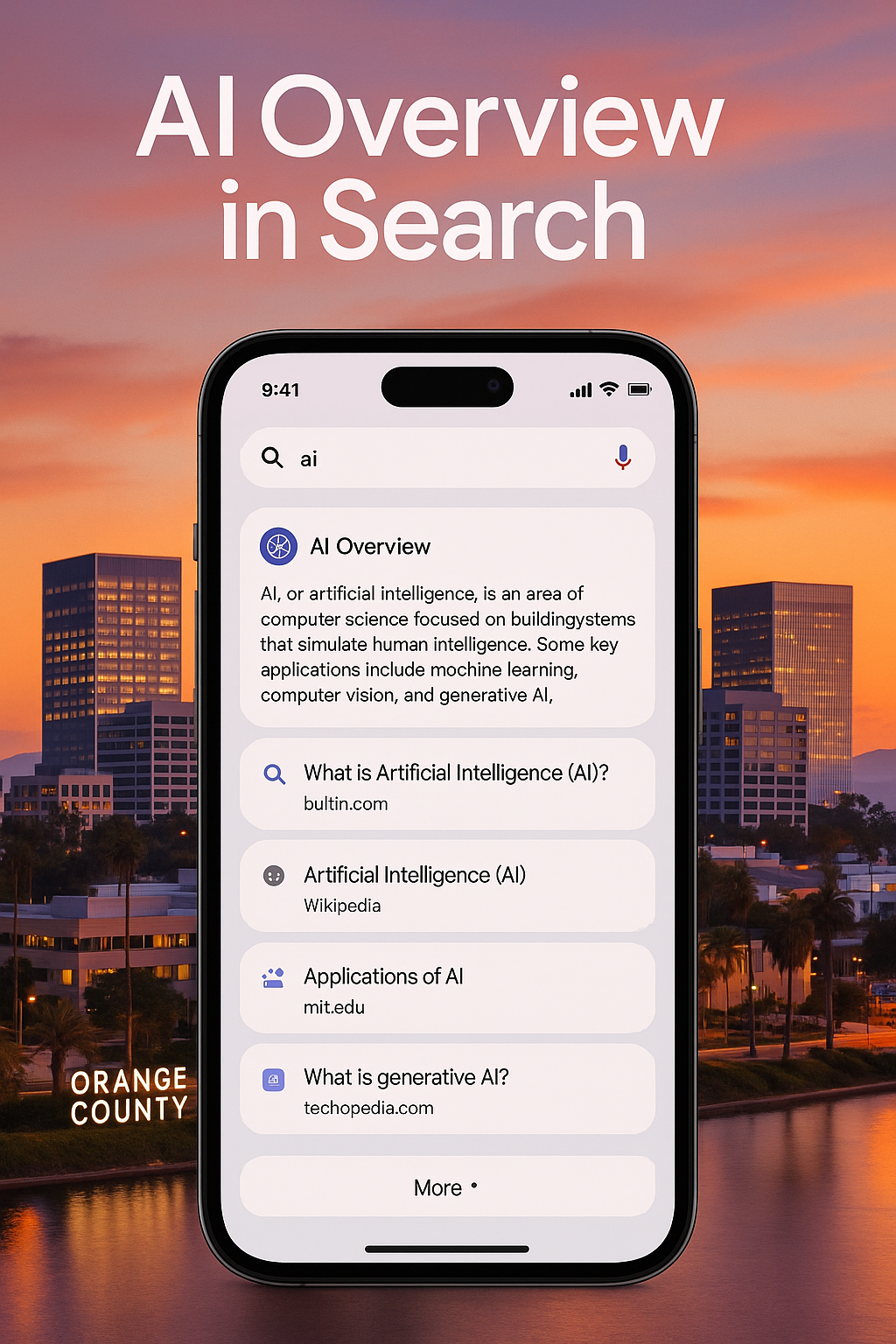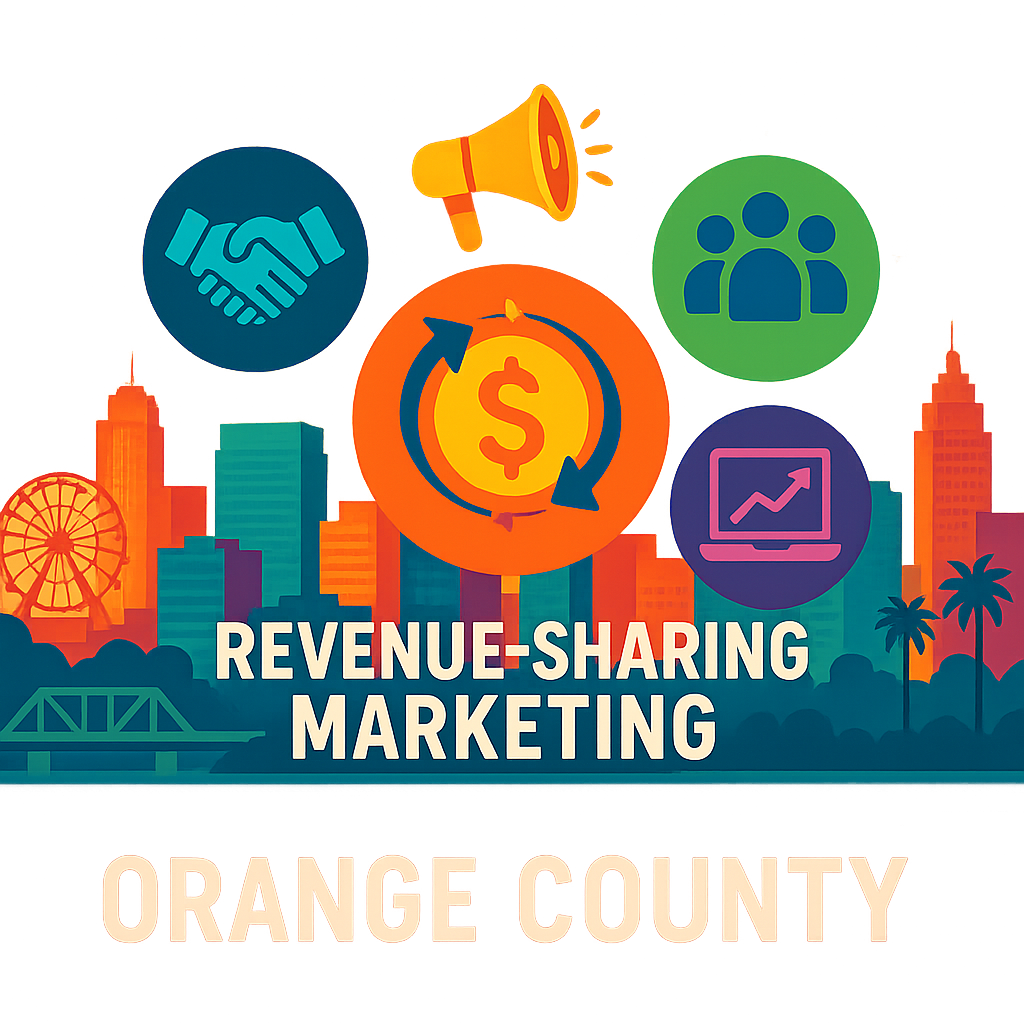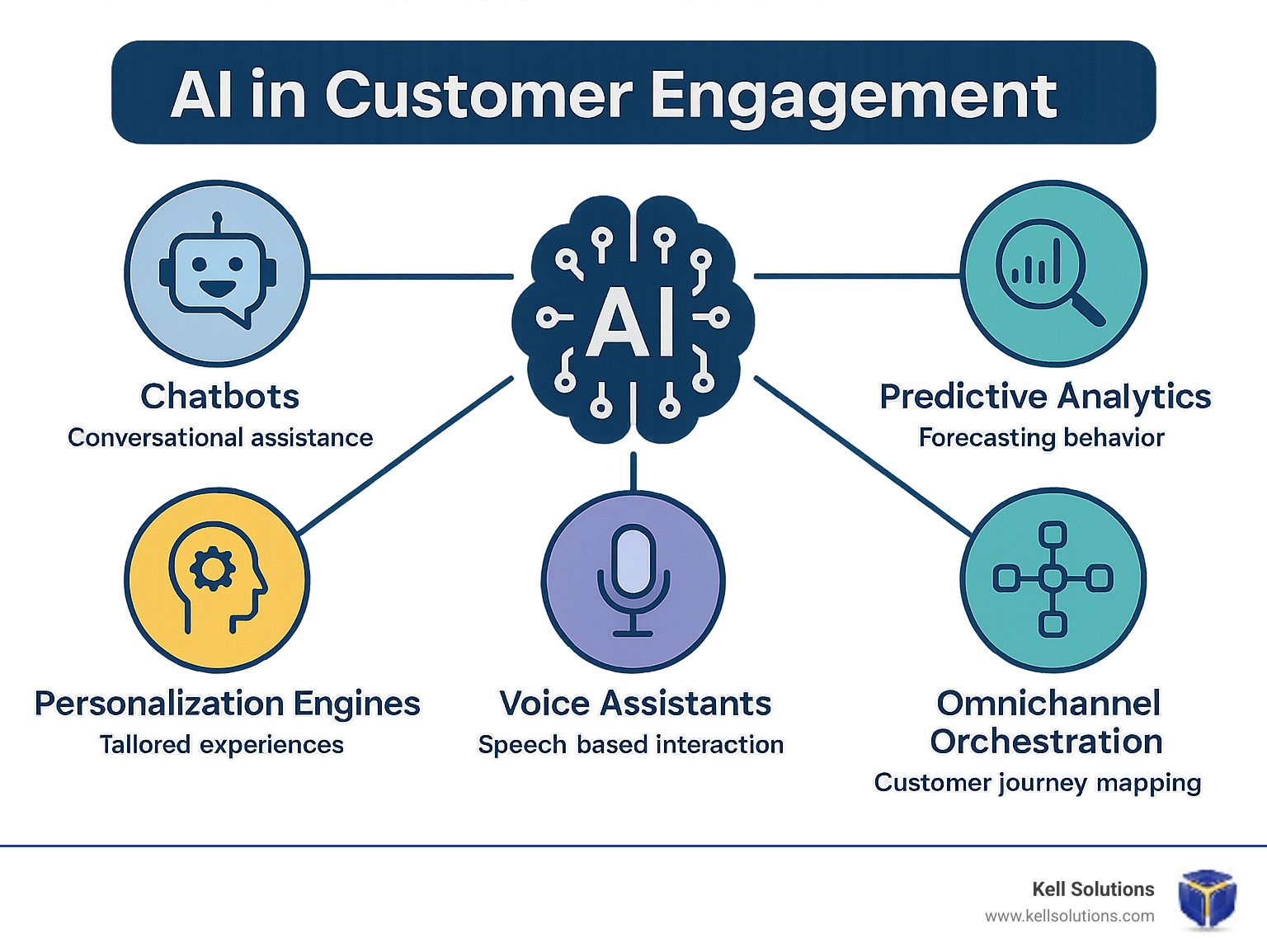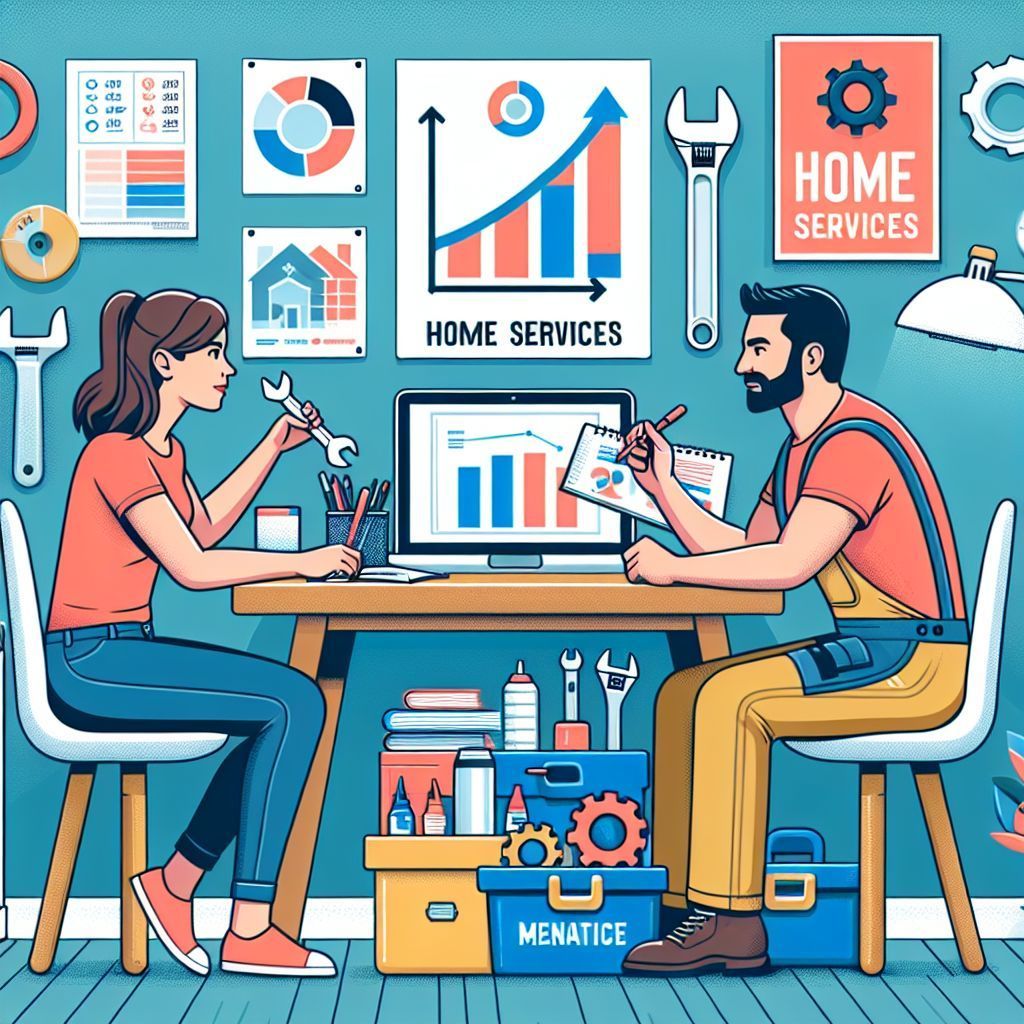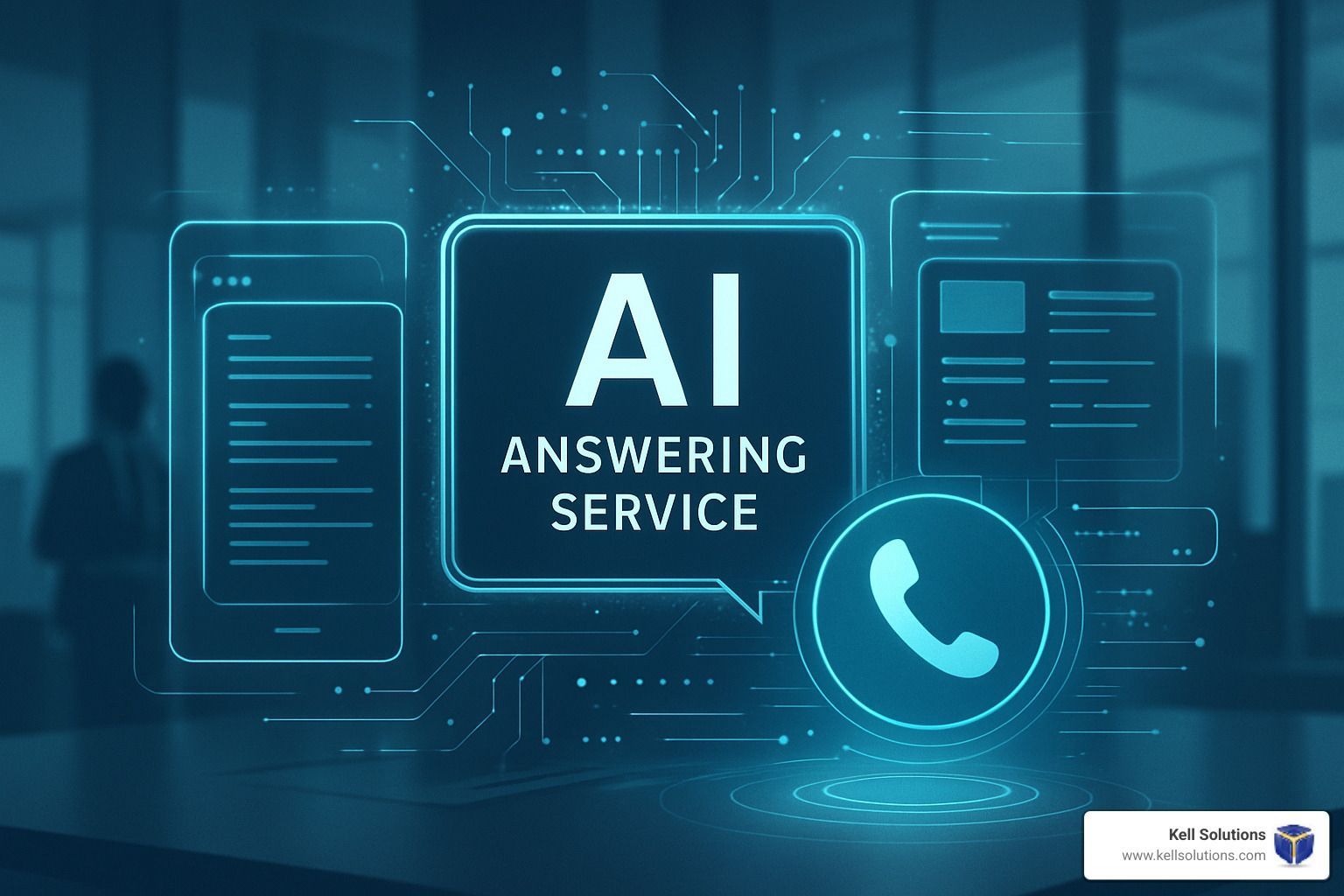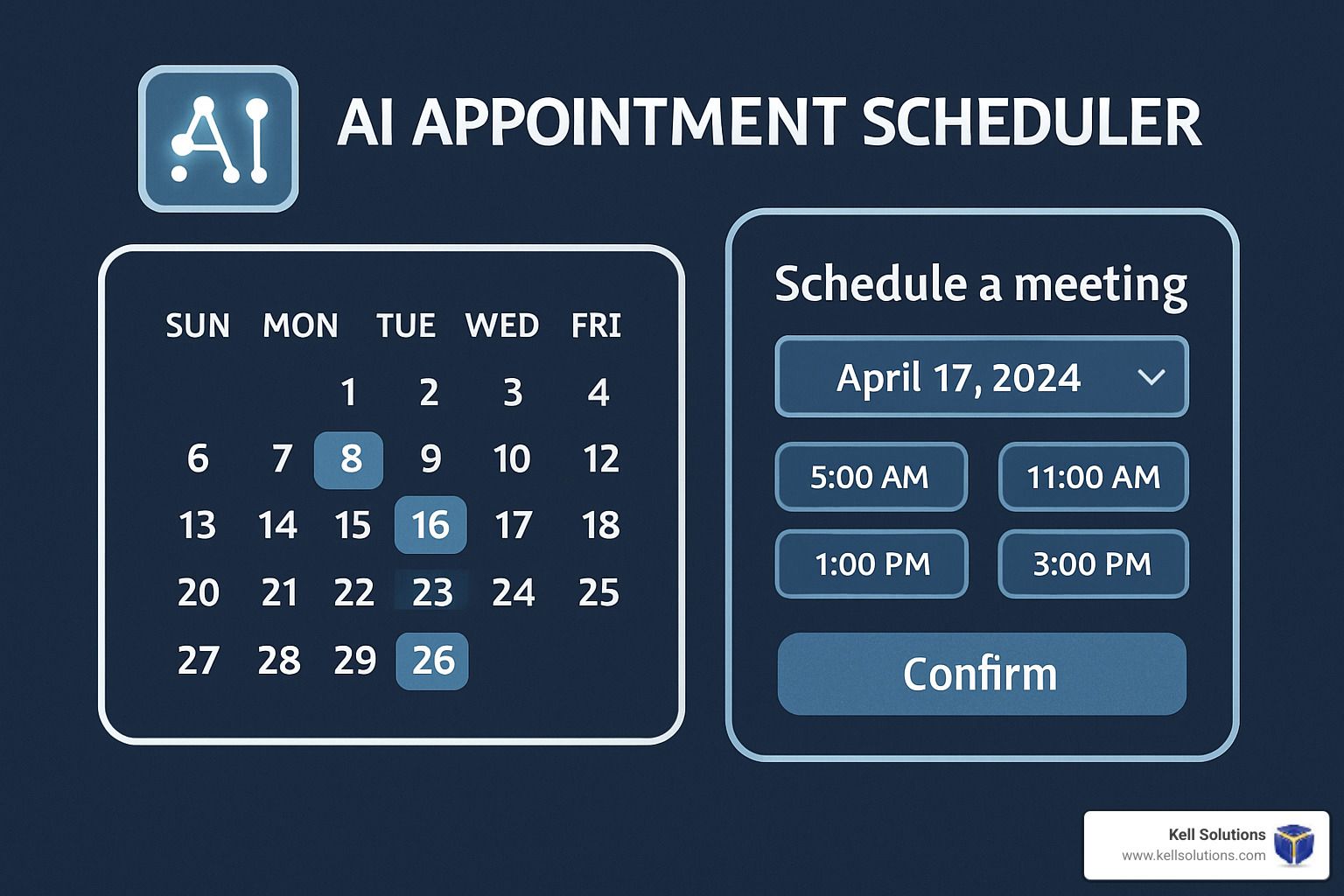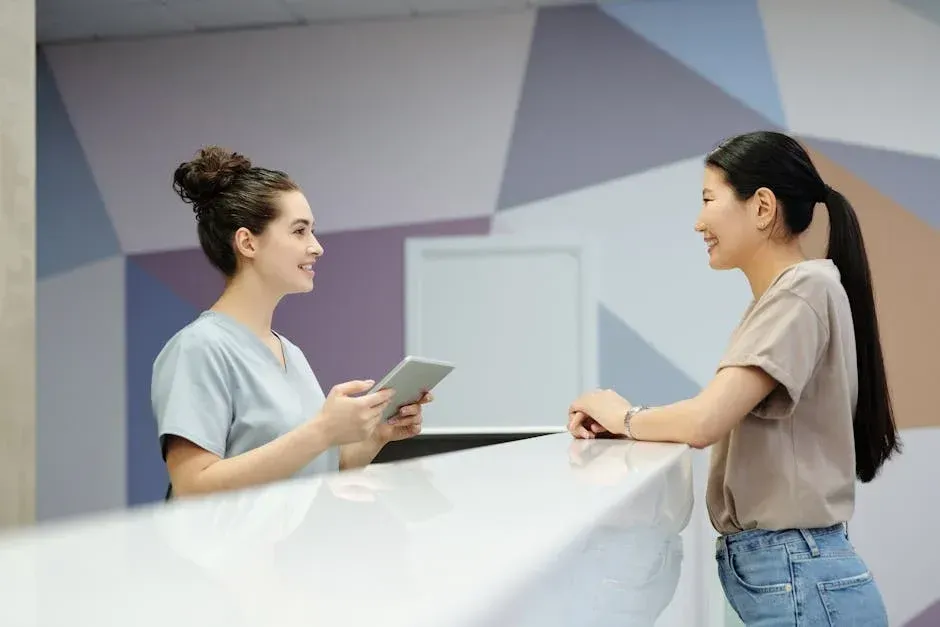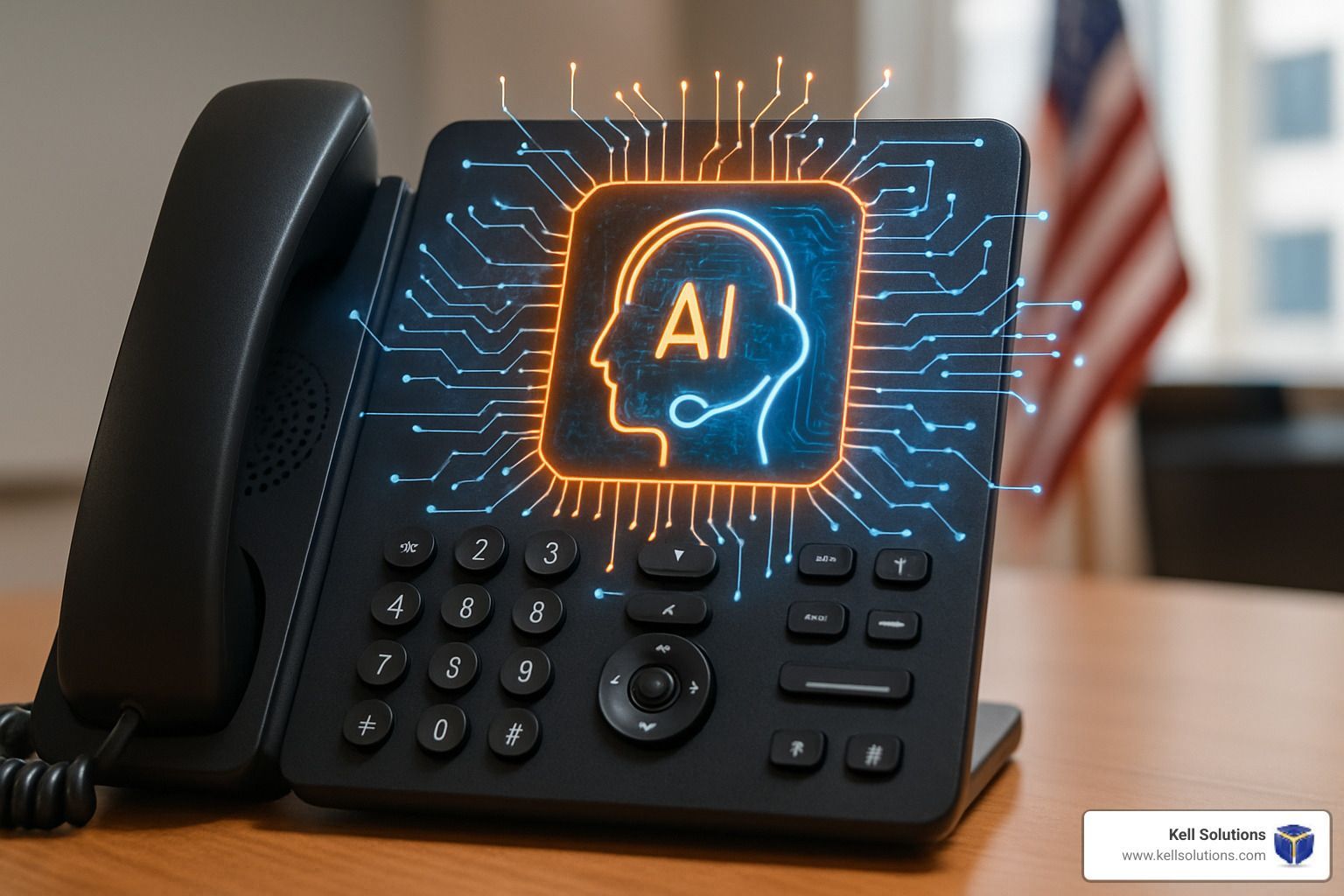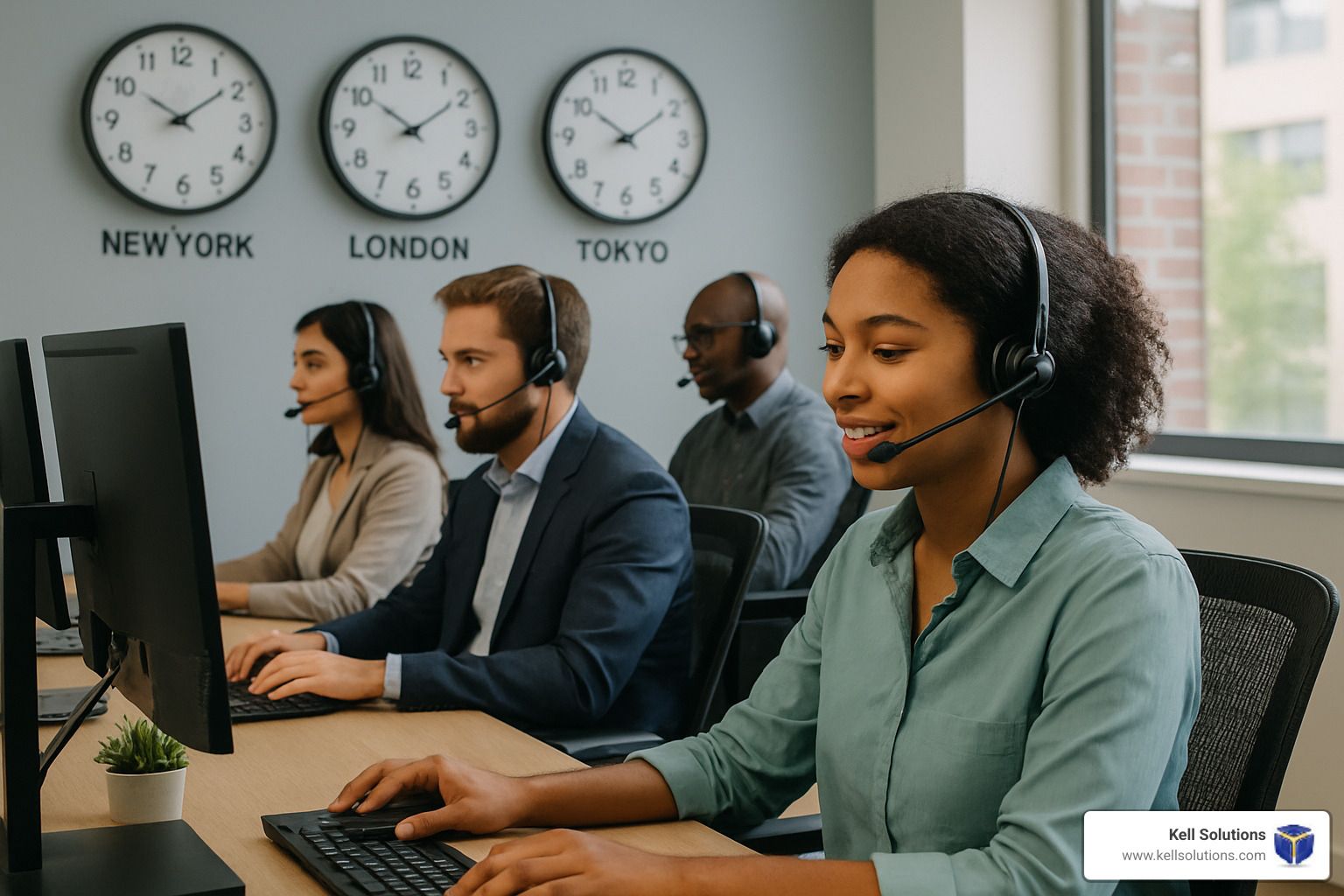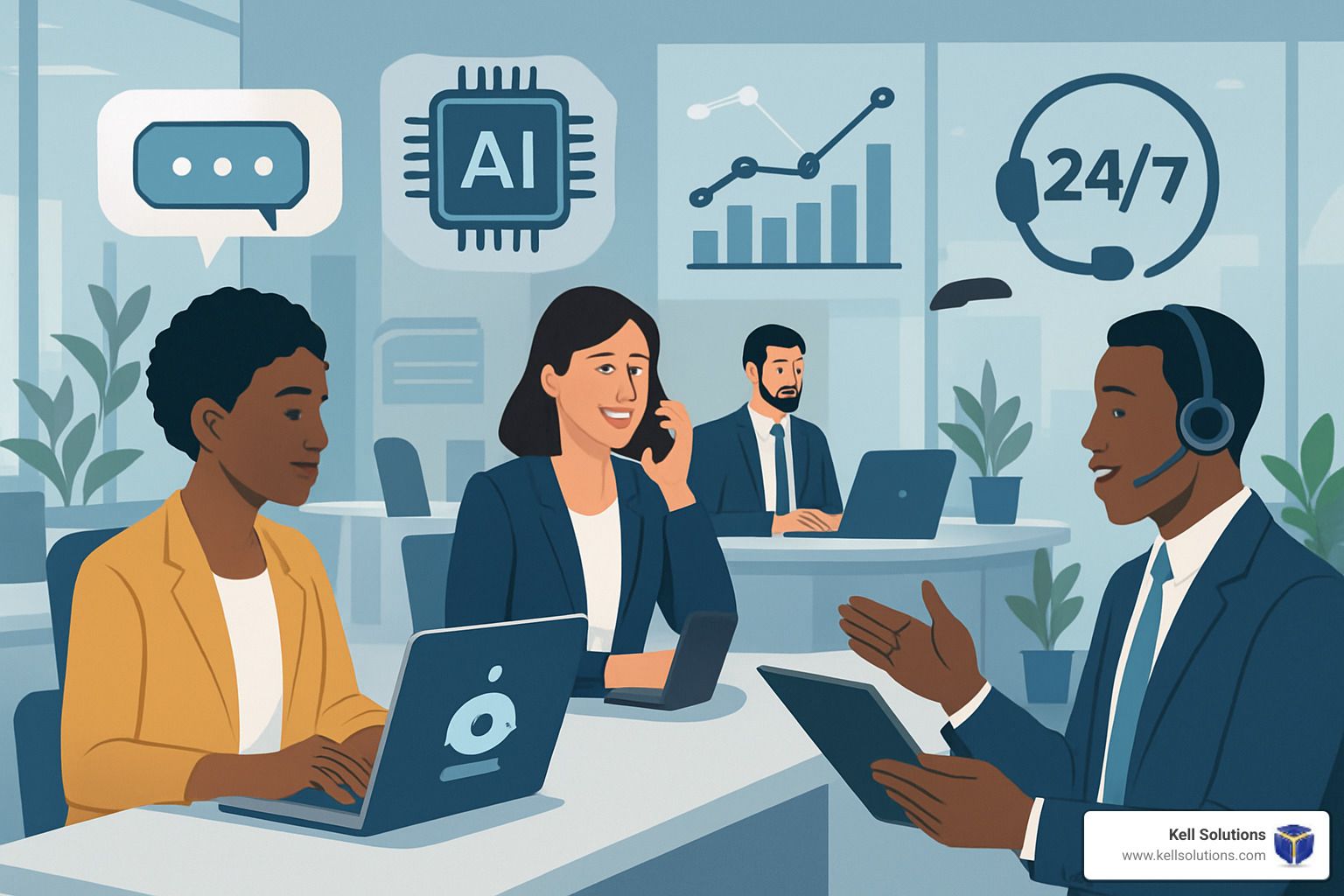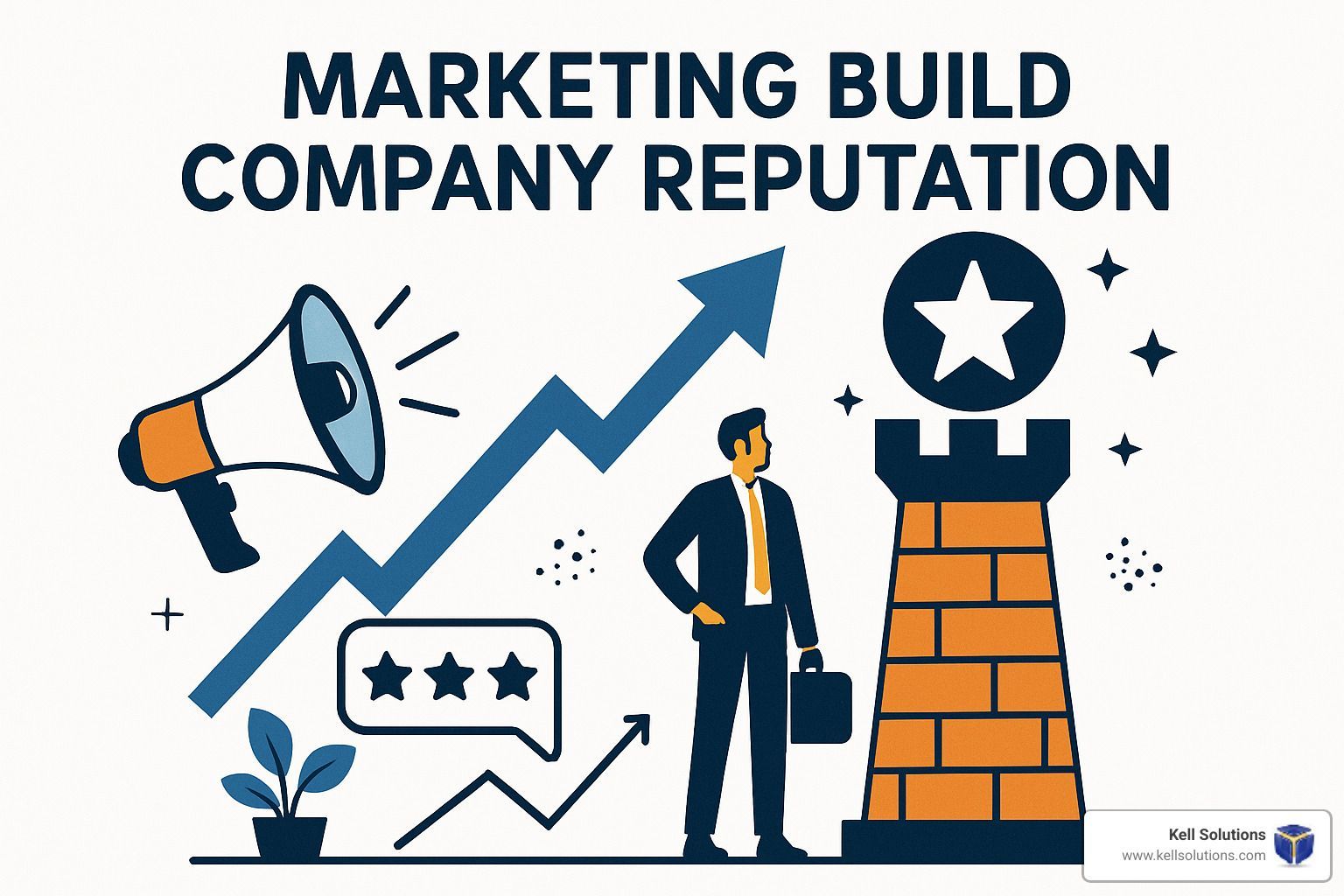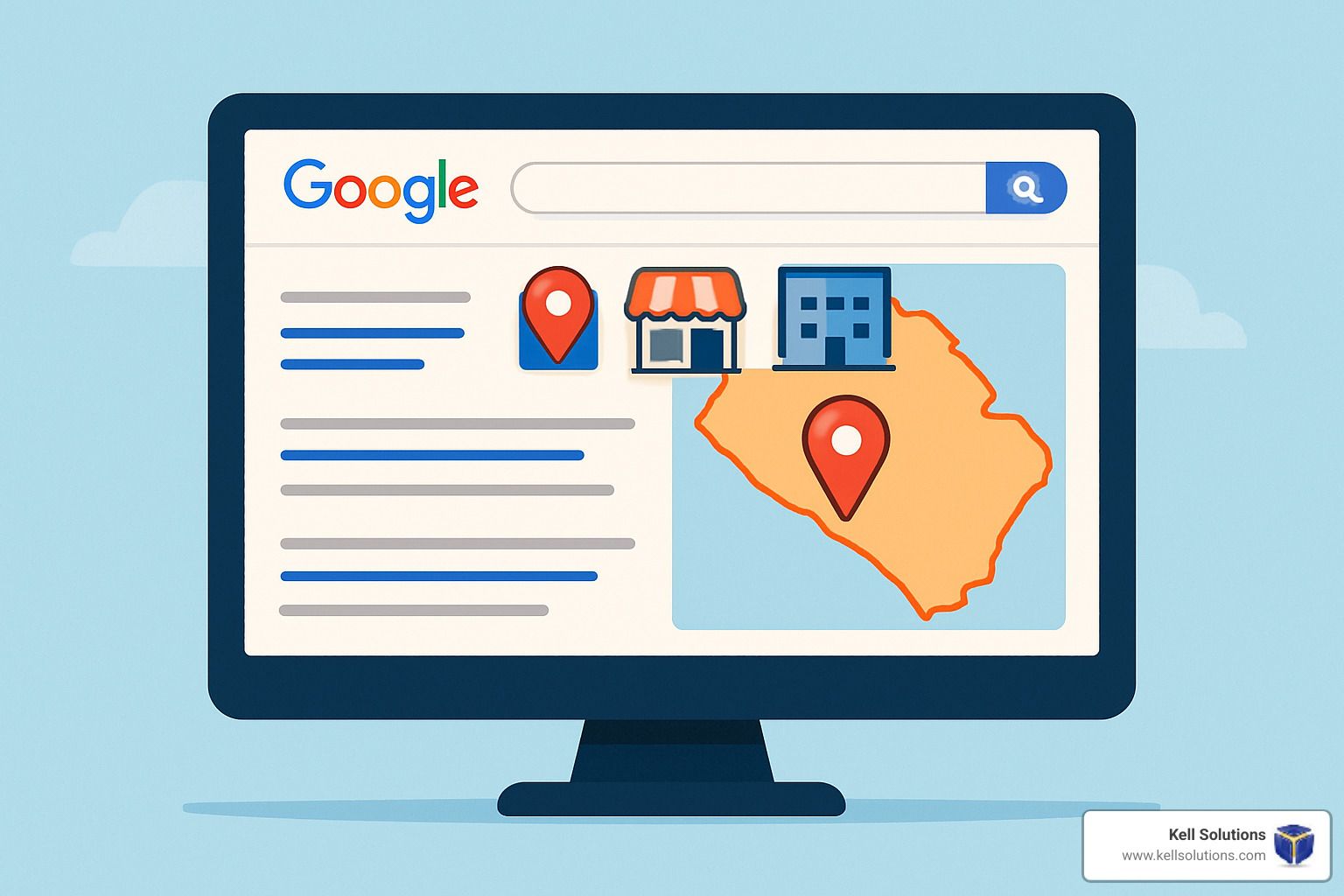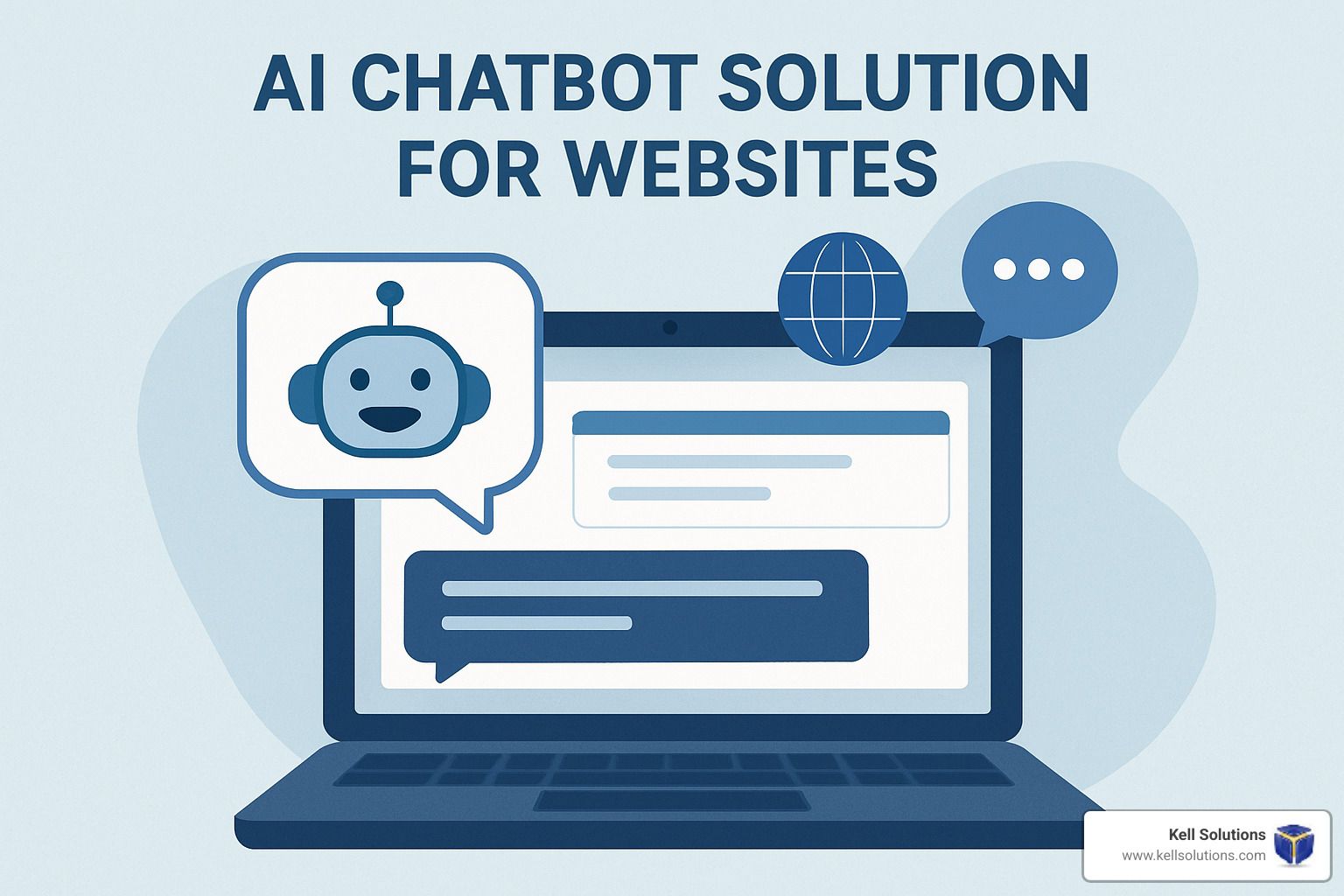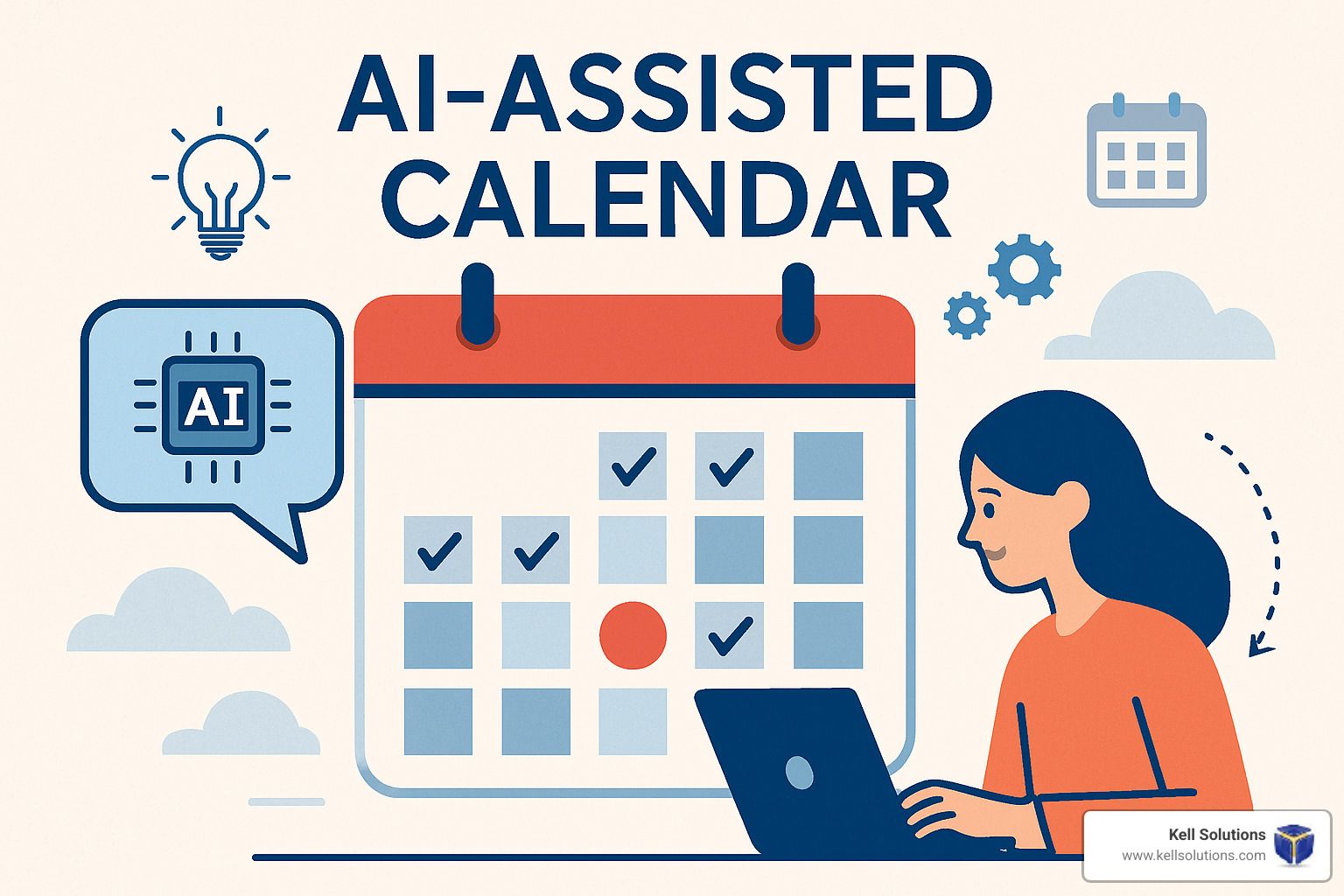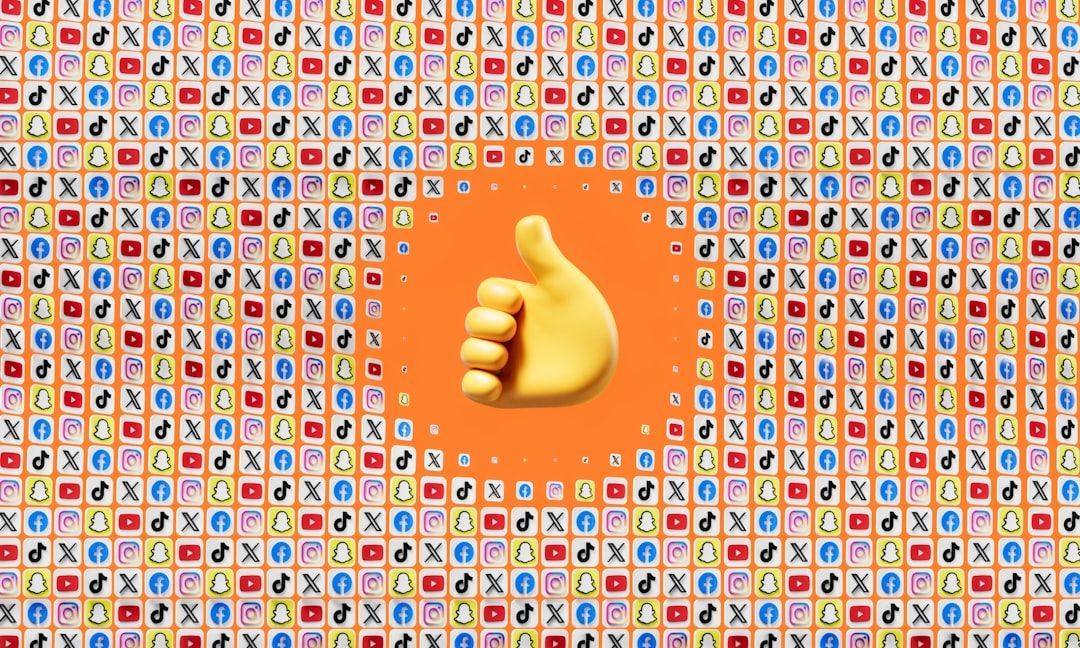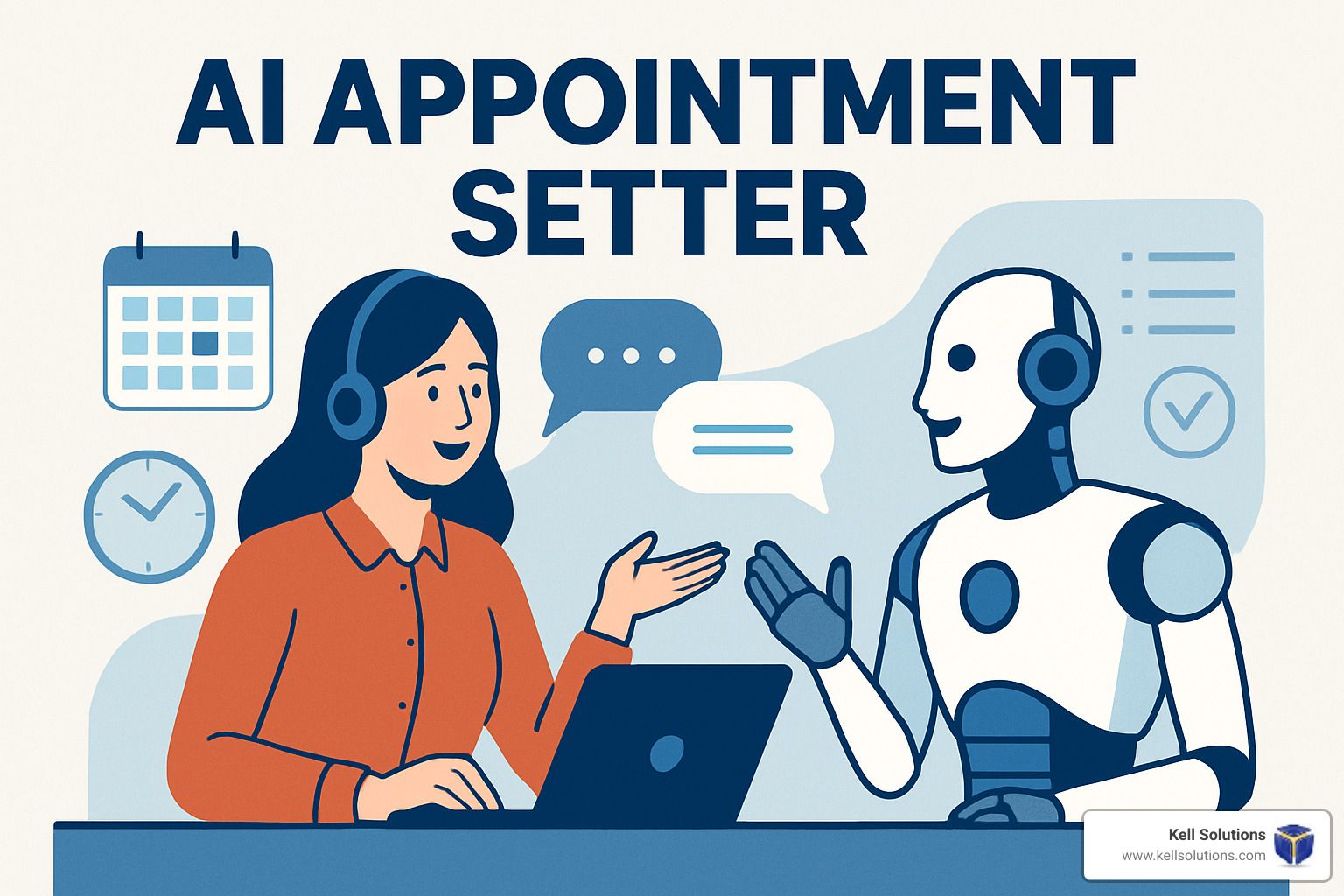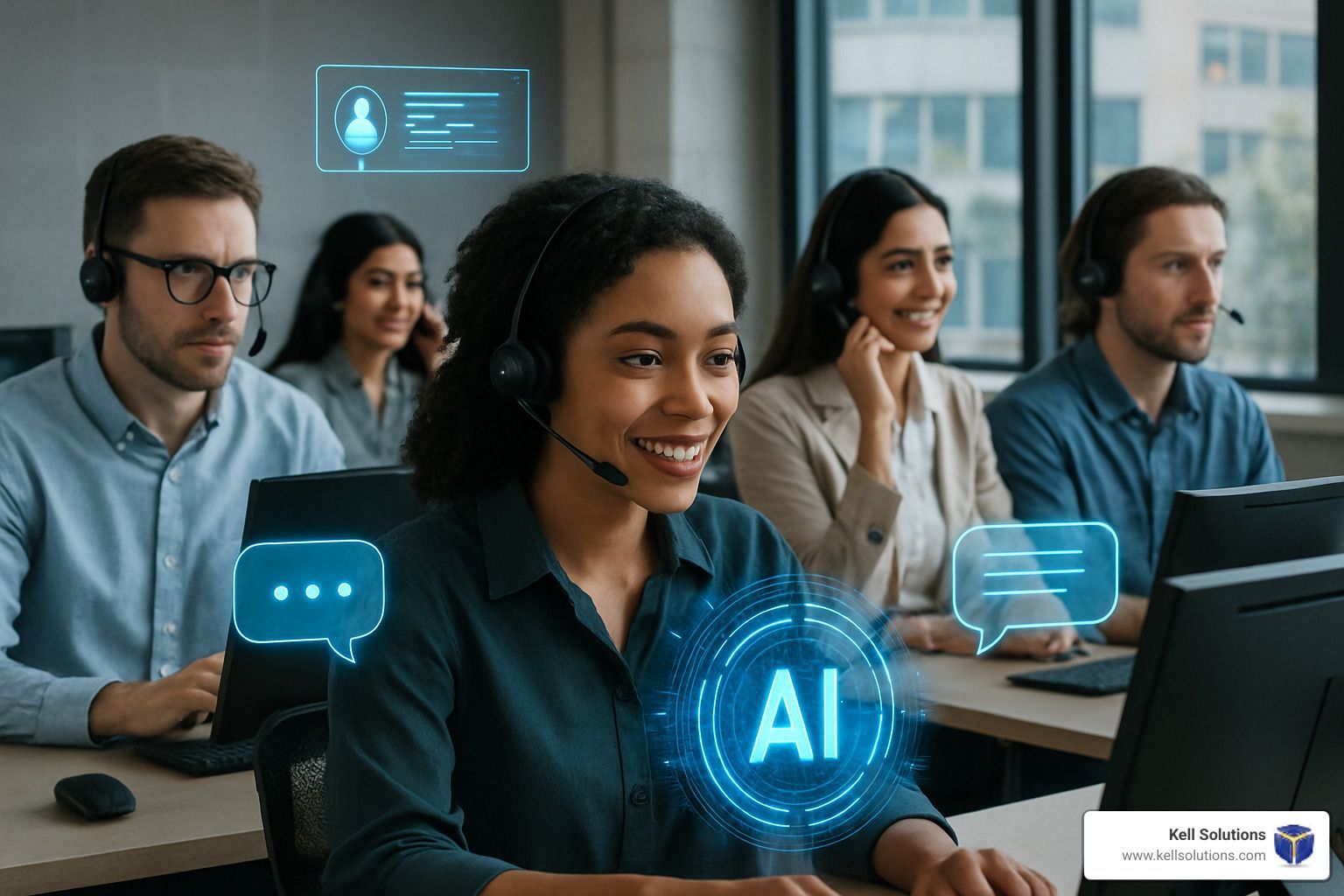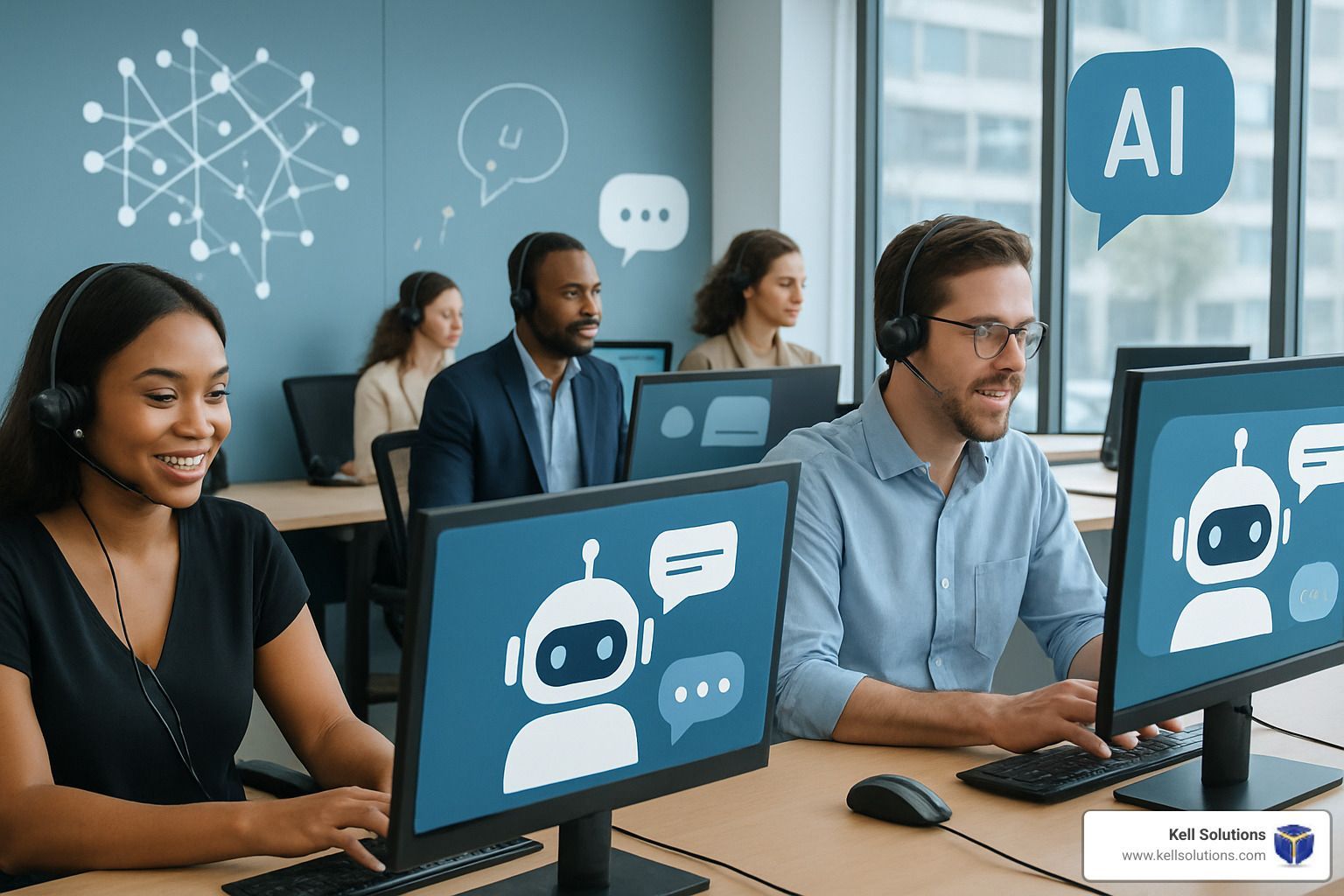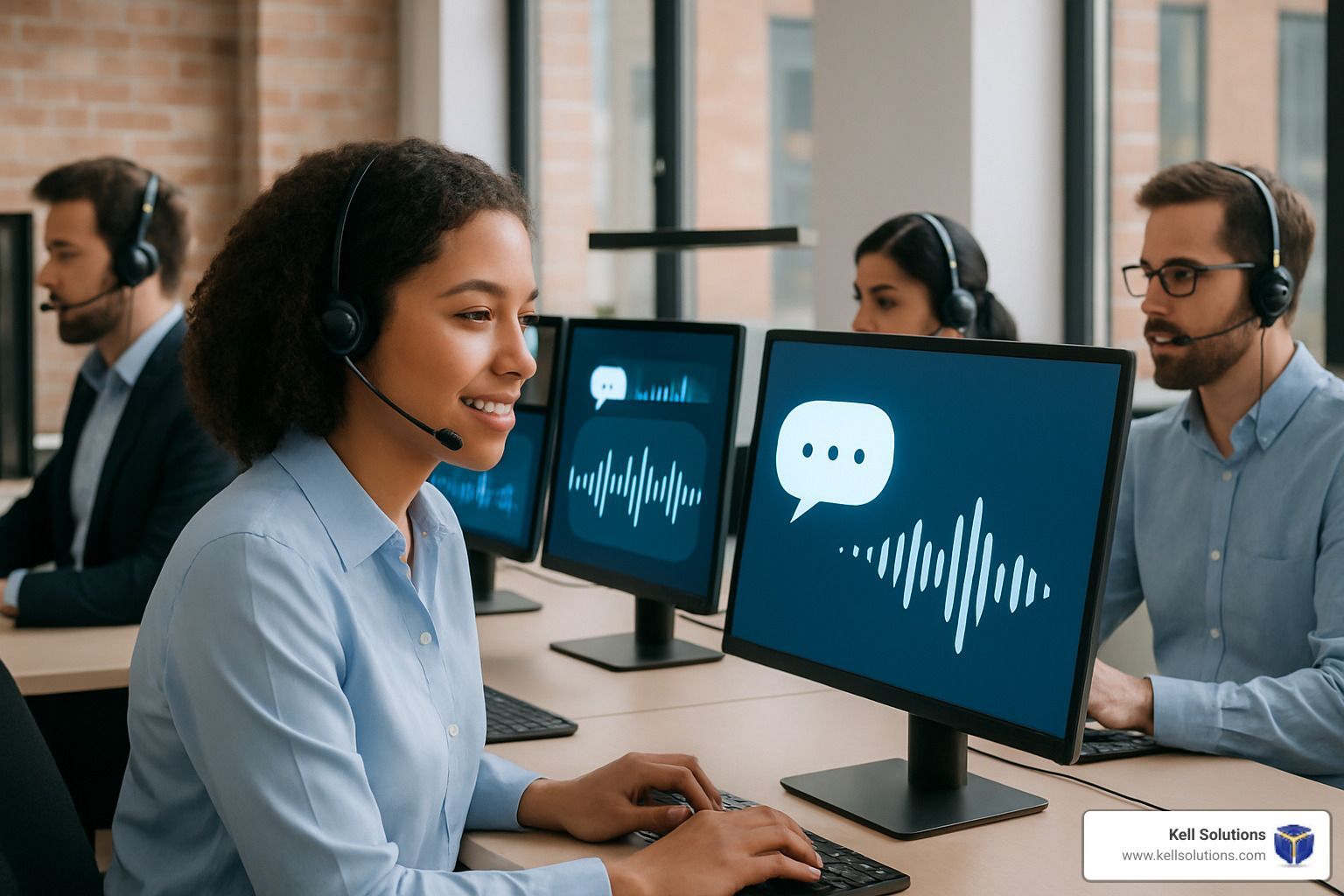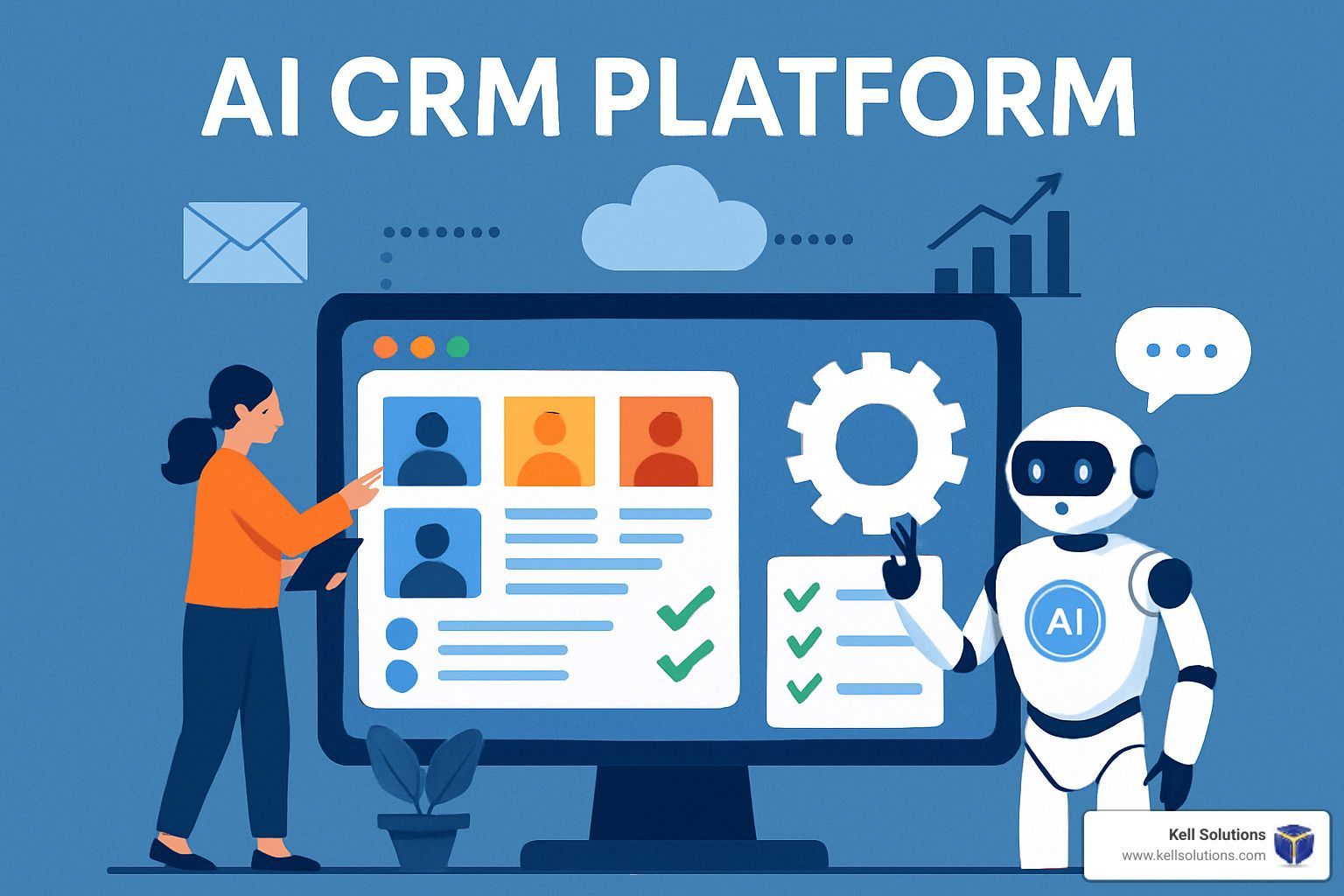Orange County Medical Practices: HIPAA-Compliant Virtual Receptionists Who Never Compromise Patient Privacy
Why Your Orange County Medical Practice Needs a HIPAA-Compliant Virtual Receptionist
A HIPAA compliant virtual receptionist Orange County is an essential service for healthcare practices throughout Irvine, Newport Beach, and Anaheim that handles patient calls while protecting Protected Health Information (PHI) according to federal regulations. When choosing a service for your Orange County medical practice, look for these critical features:
Essential HIPAA Compliant Virtual Receptionist Features for Orange County Practices:
- 100% US-based staff with 24/7 coverage and secure facility operations
- End-to-end encryption with healthcare API integration
- Bilingual support with specialized medical training and encrypted communications—crucial for diverse Orange County communities
- AI-powered solutions with human backup for instant response and appointment booking
- HITRUST certification with extensive medical answering service experience
Meeting the privacy expectations of your patients isn't just a suggestion—it's the law. As one provider noted, "Many practitioners hesitate to incorporate a medical answering service—after all, how could a virtual receptionist offer the same care, compassion, and knowledge that a well-trained staff member provides?"
The answer lies in choosing a service that combines strict HIPAA compliance with medical expertise. These services use encrypted communications, secure data storage, and specially trained agents who understand medical terminology and patient privacy requirements—essential for Orange County medical practices serving diverse patient populations.
Why This Matters for Your Orange County Practice:
HIPAA violations can result in penalties up to $50,000 per violation. Standard virtual receptionist services often lack the security measures needed to handle patient information safely. A HIPAA compliant virtual receptionist protects both your patients and your practice from costly breaches.
The right service provides 24/7 coverage, appointment scheduling, and emergency call routing—all while maintaining the highest privacy standards. Many integrate directly with your existing EMR/EHR systems for seamless workflow—particularly valuable for busy Orange County practices.
I'm Gregg Kell, founder of Kell Web Solutions based in Laguna Beach, and I've helped hundreds of professional service firms throughout Orange County implement secure communication systems over the past 25 years. Through my work with VoiceGenie AI and other HIPAA compliant virtual receptionist Orange County solutions, I've seen how the right service can transform patient communication while maintaining strict compliance standards.
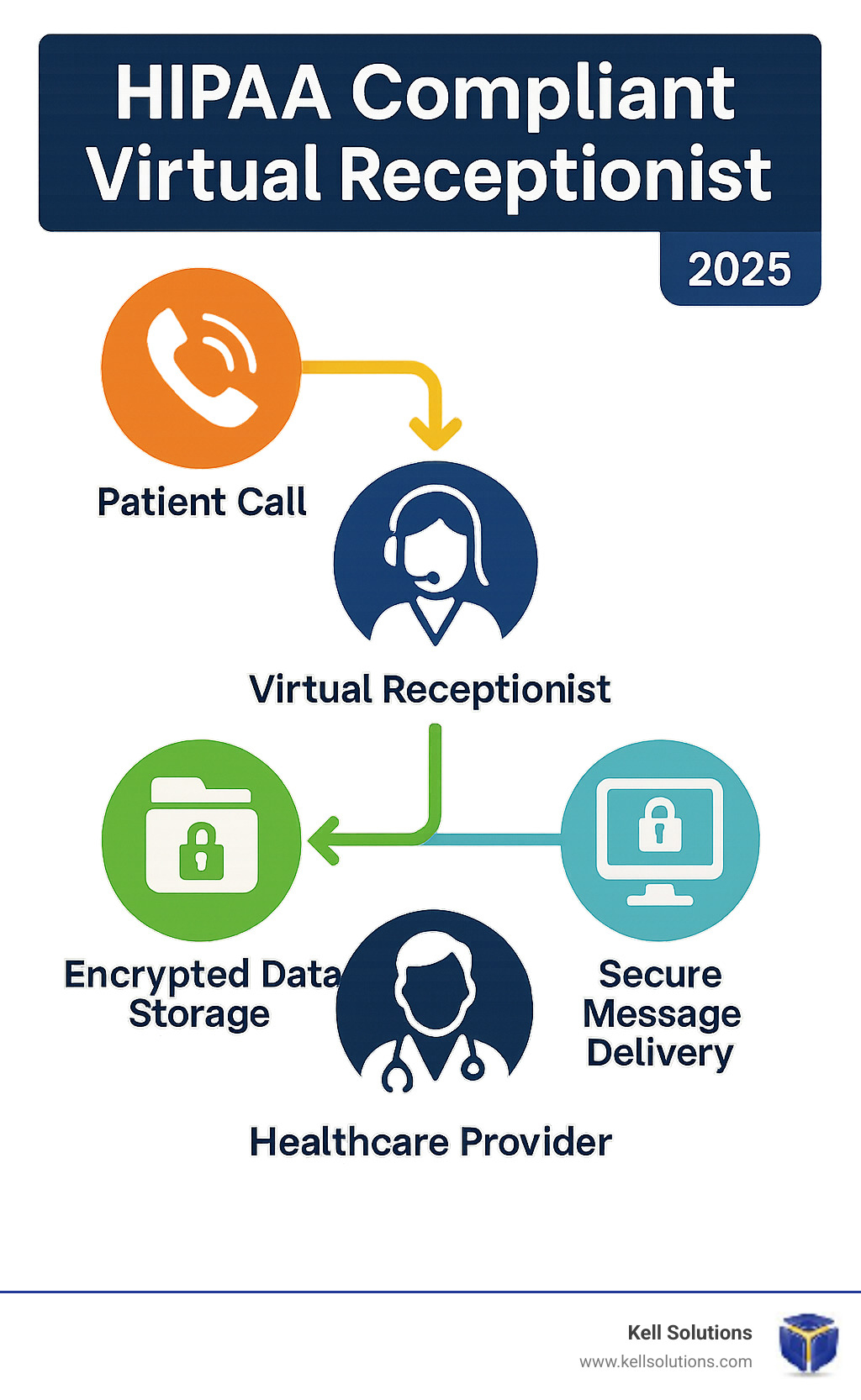
What Is a HIPAA-Compliant Virtual Receptionist for Orange County Medical Practices?
Think of a HIPAA compliant virtual receptionist as your practice's digital front desk—but with military-grade security protecting every patient conversation. Unlike your typical answering service that might handle calls for pizza shops and plumbers, these specialized services are built from the ground up to safeguard medical information for Orange County healthcare providers.
The difference is like comparing a regular mailbox to a bank vault. Standard virtual receptionists focus on being friendly and efficient. HIPAA compliant virtual receptionists must be all that plus legally bulletproof when handling Protected Health Information (PHI) for Orange County patients.
The Foundation: Understanding HIPAA Requirements for Orange County Practices
HIPAA—the Health Insurance Portability and Accountability Act—became law in 1996, forever changing how healthcare information gets handled. For virtual receptionists serving Orange County medical practices, the most important parts are the Privacy Rule and Security Rule.
The Privacy Rule governs how PHI can be used and shared. When your virtual receptionist takes a call about Mrs. Johnson's appointment for her diabetes check-up, that information is protected. They can't discuss it with unauthorized people, use it for marketing, or even mention it in casual conversation.
The Security Rule focuses on electronic PHI and requires three layers of protection. Administrative safeguards include policies for who can access what information and mandatory staff training. Technical safeguards involve encryption, secure login systems, and audit trails that track every interaction. Physical safeguards ensure the actual computers and servers are locked down tighter than Fort Knox.
Here's where it gets serious: any virtual receptionist service handling your patient information must sign a Business Associate Agreement (BAA). This legal document makes them just as responsible for protecting patient data as your own staff. No BAA? That's a red flag bigger than a stop sign.
For more details about how these services work in medical practices, check out Virtual Receptionist Services for Orange County Medical Practices.
Why Orange County Healthcare Entities Need Them
Every healthcare organization that deals with patient information needs HIPAA compliant virtual receptionists. We're talking about covered entities like doctor's offices, hospitals, clinics, and telehealth providers. But it also includes pharmacies, insurance companies, and mental health practitioners throughout Orange County.
The stakes are real. HIPAA violations can cost up to $50,000 per incident—and that's just the financial penalty. The reputation damage from a data breach can be devastating. Patients trust you with their most personal information, and one slip-up can destroy years of relationship building.
Consider this: a regular virtual receptionist might store call recordings on unsecured servers or use unencrypted email to send appointment confirmations. A HIPAA compliant virtual receptionist ensures every piece of patient data is protected with the same security standards used by banks and government agencies.
The compliance liability extends beyond just the obvious healthcare providers. If you're a telehealth platform, wellness coach, or even a fitness app that collects health data, you need these protections. The rule is simple: if you handle PHI, you need HIPAA compliance.
For the latest updates on HIPAA regulations and requirements, visit the official Latest research on HIPAA regulations from the Department of Health and Human Services[50].
Must-Have Features & Compliance Checklist for Orange County Medical Practices
Choosing the right HIPAA compliant virtual receptionist service can feel overwhelming, but knowing what features truly matter will help you make a confident decision. Think of it like choosing a security system for your home—you want the best protection without making daily life complicated.
Security Infrastructure Requirements for Orange County Practices
The foundation of any reliable HIPAA compliant virtual receptionist starts with bulletproof security. End-to-end encryption is non-negotiable—every phone call, text message, and piece of data must be scrambled during transmission and while stored. Services like WellReceived have figured this out by using Google Cloud Healthcare API, which handles encryption automatically.
Here's where many practices get tripped up: regular text messaging is a HIPAA violation waiting to happen. Secure messaging systems with password protection and automatic logout features are essential. Your virtual receptionist should never be sending appointment reminders through standard SMS.
Role-based access controls ensure that only the right people see the right information. Your virtual receptionist handling appointment scheduling doesn't need access to detailed medical records—they just need enough information to do their job effectively.
Call recording controls present another critical decision point. If your service records calls (which can be helpful for training and quality assurance), those recordings must live in HIPAA-compliant, encrypted storage with proper access controls. Comprehensive audit logs track every interaction with patient information, creating a paper trail that's invaluable during compliance audits.
Secure data storage in HIPAA-compliant data centers with both physical and technical safeguards completes the security foundation. This isn't just about fancy technology—it's about protecting your patients' trust and your practice's reputation.
Operational Excellence Features for Orange County Medical Practices
Security matters, but so does actually helping your patients. 24/7 availability means medical emergencies get proper attention regardless of when they occur. The best services maintain live coverage around the clock, not just automated systems.
Bilingual support has become increasingly important as practices serve diverse communities. Spanish-English bilingual agents who understand HIPAA requirements can significantly improve patient satisfaction while maintaining compliance—particularly valuable for Orange County's diverse population.
Redundancy and uptime protection ensures your virtual receptionist service doesn't disappear when you need it most. Backup systems and redundant infrastructure prevent those frustrating moments when patients can't reach your practice.
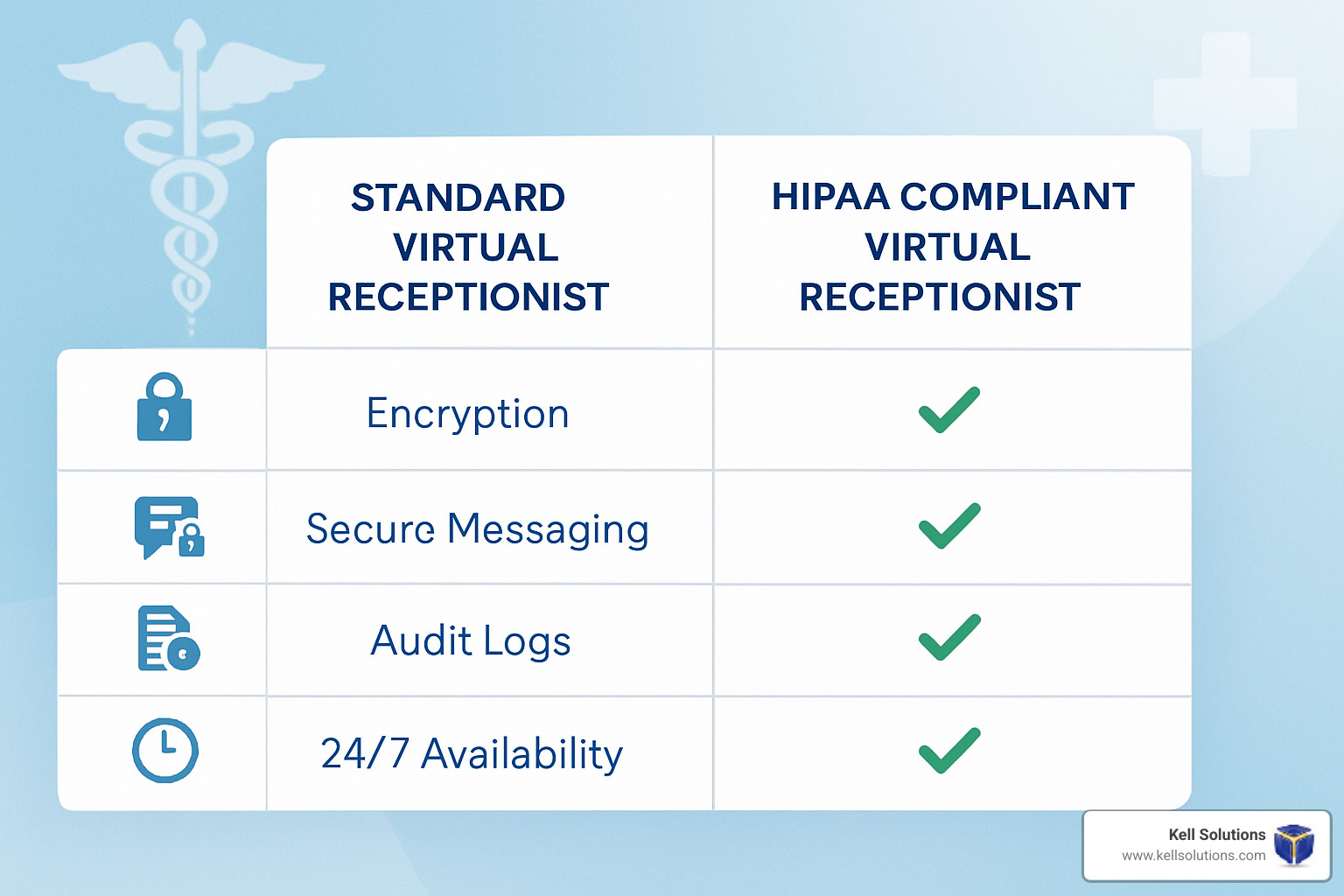
Training & Certifications
Even the most sophisticated technology means nothing without properly trained people using it. HIPAA training requirements go far beyond a quick orientation session. Virtual receptionists must understand Privacy Rule requirements, Security Rule compliance, and breach notification procedures inside and out.
Annual refreshers keep everyone current with changing regulations and evolving best practices. Healthcare laws don't stay static, and neither should your virtual receptionist's knowledge.
Breach notification drills prepare staff to identify and report potential security incidents within required timeframes. The best services practice these scenarios regularly, so when real issues arise, the response is swift and appropriate.
Services with decades of experience, like notifyMD with over 30 years in the field, often achieve additional certifications like HITRUST, demonstrating their commitment to security excellence.
Integrations That Matter for Orange County Medical Practices
Modern HIPAA compliant virtual receptionist services work seamlessly with your existing healthcare technology. EMR/EHR integration allows receptionists to access scheduling and basic patient information securely, eliminating the need for duplicate data entry.
Scheduling applications with real-time integration mean appointments get booked correctly the first time. CRM connectors through secure APIs ensure patient information flows smoothly into your customer relationship management systems without manual intervention.
Secure communication platforms complete the integration picture, ensuring all patient communications remain compliant regardless of which system handles them.
For more detailed information about how AI is changing medical reception, see VoiceGenie AI: Changing Medical Reception for Orange County.
More info about AI Receptionist vs. Traditional Receptionist
Best HIPAA Compliant Virtual Receptionist Services of 2024 for Orange County
The landscape of HIPAA compliant virtual receptionist services has evolved dramatically, offering healthcare practices throughout Orange County several distinct approaches to secure patient communication. Modern solutions balance security, functionality, and cost-effectiveness while meeting strict healthcare compliance requirements.
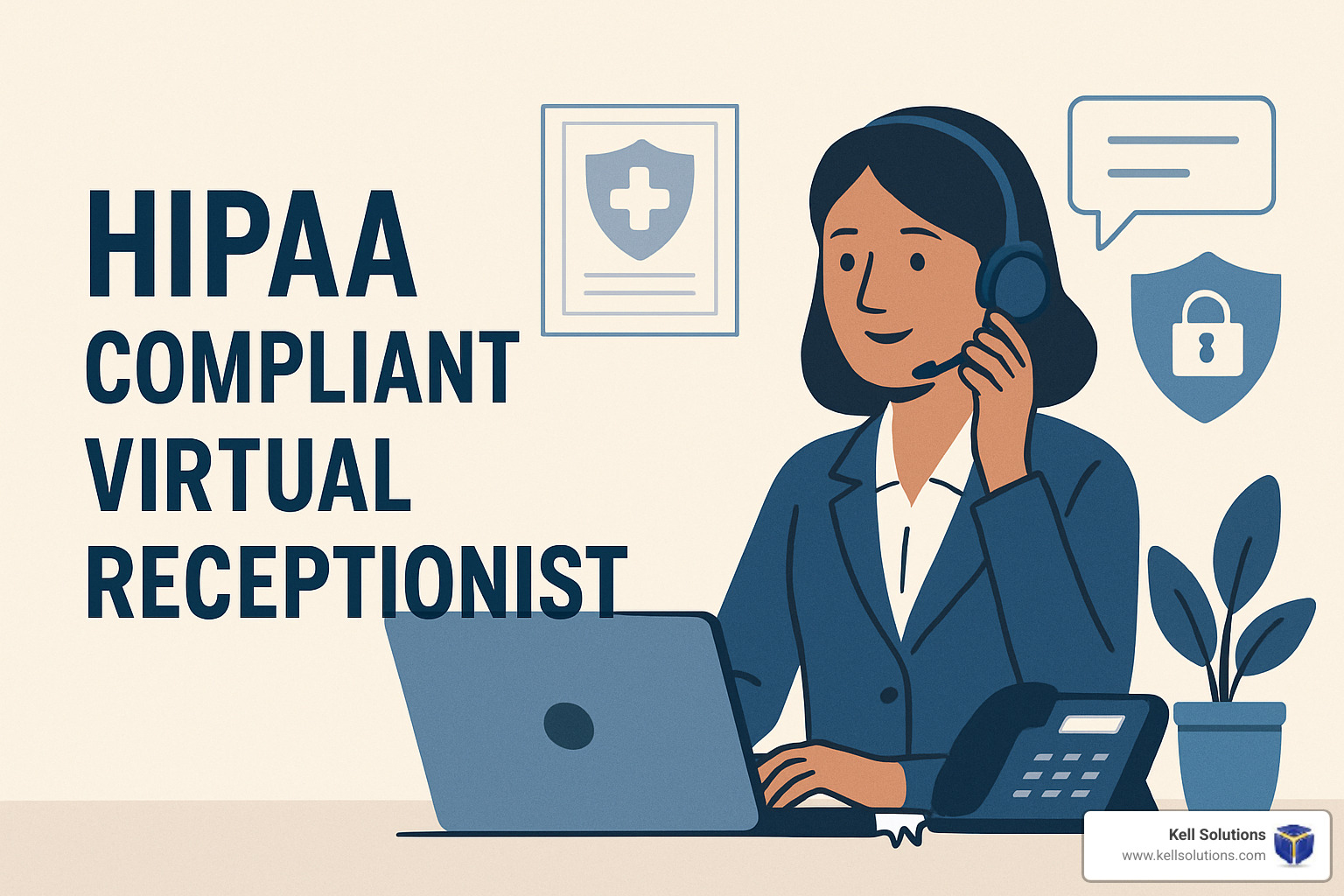
AI-Powered HIPAA Compliant Virtual Receptionist for Orange County
The future of medical reception is here, and it's powered by artificial intelligence. VoiceGenie AI leads this revolution, combining natural language processing with instant response capabilities while maintaining strict HIPAA compliance standards for Orange County medical practices.
What makes AI-powered solutions so compelling is their ability to provide round-the-clock answering without the overhead costs of human staff. These systems understand medical terminology and can handle routine patient inquiries like appointment scheduling, prescription refill requests, and basic information gathering with remarkable accuracy.
The technology uses end-to-end encryption for all communications and integrates seamlessly with major EMR/EHR systems. When patients call, they receive instant responses rather than waiting in phone queues or listening to endless hold music. The AI can book appointments, reschedule existing ones, and even handle basic triage questions.
For practices dealing with high call volumes, this approach offers significant scalability advantages. The system can handle dozens of simultaneous calls without compromising response quality or security standards. When complex situations arise that require human intervention, the AI seamlessly transfers calls to trained medical staff.
The lower-cost structure of AI-powered services makes them particularly attractive for smaller practices or those looking to optimize their operational efficiency without sacrificing patient care quality.
Hybrid AI + Human Safety Net for Orange County Practices
Sometimes you need the best of both worlds. Hybrid AI + Human Safety Net services combine artificial intelligence efficiency with human empathy, creating a powerful solution for practices that want technology benefits without losing the personal touch.
These services use AI for initial screening and routine inquiries, then seamlessly hand off complex or sensitive calls to live agents. This approach works particularly well for overflow management during peak hours when human staff might be overwhelmed.
The AI component handles straightforward tasks like appointment confirmations and basic information requests, while human agents take over for empathy-calls involving distressed patients or complex medical situations. This division of labor ensures that patients receive appropriate care while maximizing operational efficiency.
Lead qualification becomes much more effective with this hybrid approach. The AI can gather initial information and determine urgency levels, ensuring that live agents focus their time on the most important interactions. This targeted approach improves both patient satisfaction and practice productivity.
The system maintains complete HIPAA compliance across both AI and human touchpoints, with secure handoff protocols that protect patient information throughout the entire interaction.
Fully Human, Medically Trained HIPAA Compliant Virtual Receptionist
For practices that prioritize human connection, fully human services remain valuable for certain healthcare environments. These medically trained receptionists operate from secure, HIPAA-compliant facilities and understand the nuances of patient communication that human experience provides.
The best human-powered services invest heavily in medical terminology training, ensuring their staff can communicate effectively with both patients and healthcare providers. They use empathy-scripts developed specifically for healthcare settings, helping them handle sensitive situations with appropriate care and compassion.
After-hours coverage becomes particularly valuable with human services, as trained agents can make judgment calls about emergency situations and follow appropriate escalation protocols. They understand when to wake a doctor for urgent matters and when to schedule routine follow-ups.
These services operate from secure facilities with physical safeguards that meet HIPAA requirements. Staff undergo extensive background checks and regular training updates to maintain their expertise and compliance knowledge.
The human element shines brightest when dealing with anxious patients, complex insurance questions, or situations requiring emotional intelligence. While technology continues to advance, there's still something irreplaceable about human understanding and compassion in healthcare communication.
Multilingual & Global Support for Orange County's Diverse Community
Healthcare serves diverse communities, and language barriers can significantly impact patient care. Multilingual & Global Support services address this challenge by providing culturally competent communication while maintaining strict HIPAA compliance.
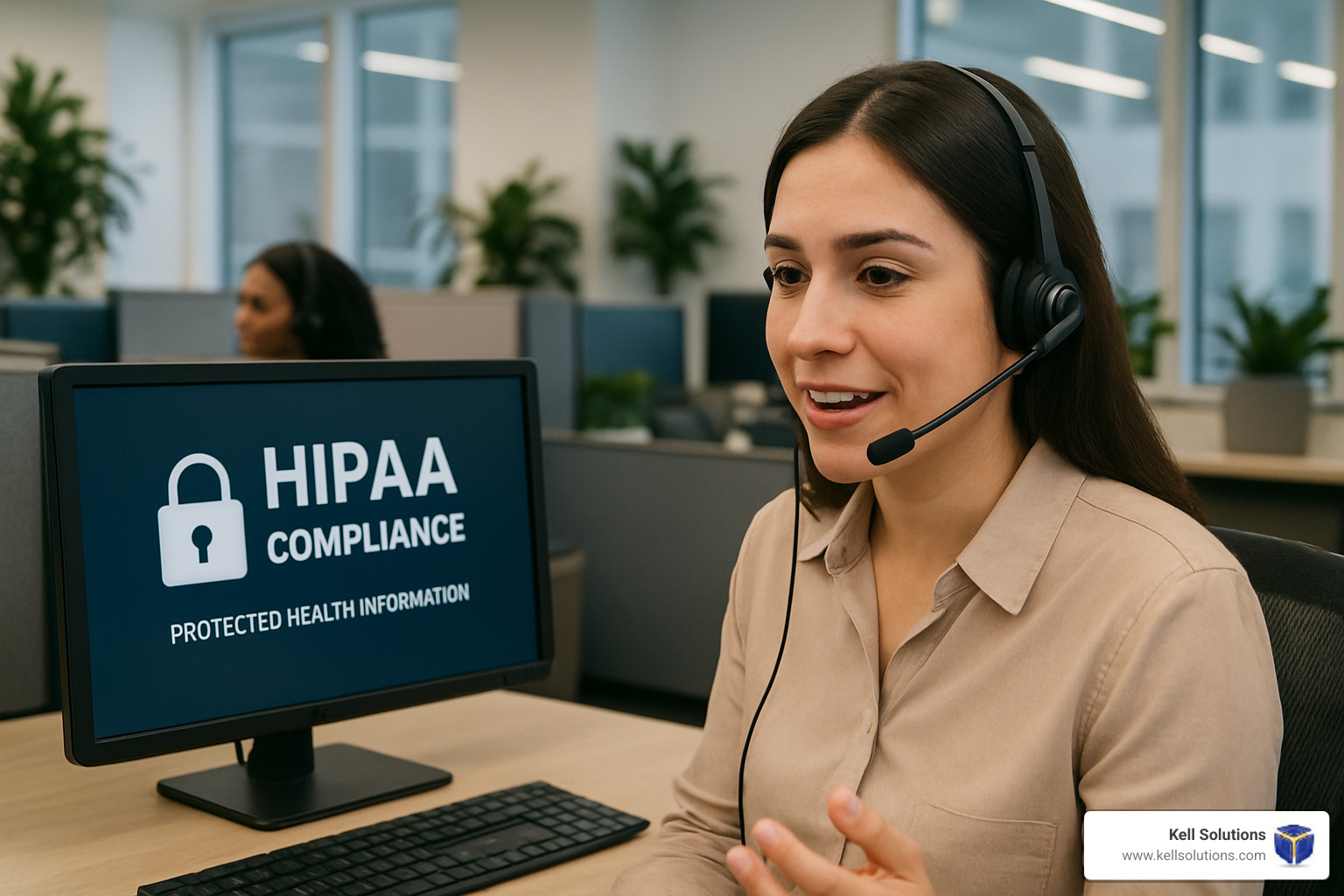
Spanish-English bilingual capabilities are particularly crucial in many healthcare markets. The best services employ agents who can seamlessly switch between languages while maintaining professional medical communication standards. This isn't just about translation—it's about cultural competence and understanding how different communities approach healthcare conversations.
Remote agents with specialized training can provide 24/7 multilingual support, ensuring that language never becomes a barrier to quality healthcare access. These agents understand the cultural nuances that affect patient communication and can adapt their approach accordingly.
PHI-in-translation presents unique challenges that require specialized protocols. Multilingual services must ensure that patient information remains protected regardless of the language used, with proper encryption and secure communication channels for all interactions.
The performance metrics for multilingual services often show improved patient satisfaction scores and reduced miscommunication incidents. When patients can communicate in their preferred language, they're more likely to provide accurate information and follow through with appointments and treatment plans.
For practices serving diverse communities, multilingual support isn't just a nice-to-have feature—it's essential for providing equitable healthcare access while maintaining the highest standards of patient privacy and security.
Avoiding Penalties: Verification Steps & Common Pitfalls for Orange County Practices
Let's be honest—nobody wants to be the practice that gets hit with a $50,000 HIPAA violation because they chose the wrong virtual receptionist service. Yet it happens more often than you'd think, and usually over things that seem minor but aren't.
I've seen practices get blindsided by penalties they never saw coming. The good news? Most of these costly mistakes are completely avoidable if you know what to look for.
Common Pitfalls to Avoid
The text message trap catches more practices than any other violation. Here's a scenario that plays out daily: your answering service texts you "Mrs. Johnson called about her diabetes medication refill." Seems harmless, right? Wrong. That simple text just violated HIPAA because it contained protected health information sent through an unsecured channel.
As one compliance expert puts it: "Pop quiz: should you have your answering service text you messages from patients? If yes, you'd be in violation of HIPAA!" Standard text messaging has zero encryption and can be accessed by anyone with the right tools.
Assuming "HIPAA compliant" means compliant is another expensive mistake. Just because a service claims to be a HIPAA compliant virtual receptionist doesn't mean they actually meet the requirements. Some services use this term loosely, hoping you won't dig deeper into their actual security measures.
Skipping the Business Associate Agreement leaves you legally exposed. If your virtual receptionist handles any patient information and doesn't sign a BAA, you're both in violation. No exceptions.
Forgetting about staff training can undermine even the best virtual receptionist service. Your team needs to understand how to work with the service while maintaining compliance on your end.
How to Vet a Provider
Start with the Business Associate Agreement. Any legitimate HIPAA compliant virtual receptionist service should have a comprehensive BAA ready to sign. If they hesitate, make excuses, or claim they don't need one, run the other way.
Ask the hard security questions. Don't just take their word for it. Find out exactly how they encrypt data, what physical safeguards protect their facilities, how they manage access controls, and what audit logging they maintain. A compliant service will be proud to share these details.
Look for third-party certifications. HITRUST, SOC 2, and similar certifications show that independent auditors have verified their security measures. These aren't just nice-to-have certificates—they're proof of real compliance.
Check their uptime guarantees. Medical emergencies don't wait for technical difficulties. Make sure your provider guarantees the availability your patients need.
Talk to their existing healthcare clients. References from other medical practices give you insight into real-world performance beyond the sales pitch.
More info about Virtual Medical Receptionist Service for Orange County
What Happens If You Choose a Non-Compliant Vendor?
The consequences go far beyond the immediate financial hit, though that's painful enough. Fines can reach $50,000 per violation, and violations can add up quickly when patient information is involved.
Your reputation takes a beating. News of HIPAA violations spreads fast in medical communities. Patients lose trust, referrals dry up, and rebuilding your reputation takes years.
The costs keep coming. Legal fees for breach response, remediation expenses, potential lawsuit settlements, and increased insurance premiums all add up. Some practices never fully recover financially.
Long-term consequences include difficulty obtaining malpractice insurance, challenges if you ever want to sell your practice, and ongoing regulatory scrutiny that makes running your practice more difficult.
The irony? All of this is preventable by choosing the right HIPAA compliant virtual receptionist service from the start. A little extra time on due diligence can save you years of headaches and potentially practice-ending expenses.
For more information about compliance requirements, visit Scientific research on interactive patient care.
Frequently Asked Questions about HIPAA-Compliant Virtual Receptionists
Do virtual receptionists need direct access to my EHR?
This is one of the most common concerns we hear from medical practices, and the good news is that a HIPAA compliant virtual receptionist doesn't necessarily need full access to your electronic health records to be effective.
Many top-tier services work perfectly well with limited, role-based access to your systems. They can handle appointment scheduling and basic patient information without diving deep into your EHR database. Think of it like giving someone the keys to your front office, but not to your medical records vault.
However, strategic integration can make your virtual receptionist much more efficient. When they have appropriate access to your systems, they can schedule appointments directly, access patient contact information, update basic demographic details, and view appointment history for rescheduling purposes.
The secret sauce here is implementing proper role-based access controls. Your virtual receptionist should only see what they absolutely need to do their job—nothing more, nothing less. This approach keeps you compliant while maximizing efficiency.
How are call recordings stored securely?
If you're wondering how your patient conversations stay protected, compliant services use multiple layers of security that would make a bank vault jealous.
Encrypted storage is the foundation—recordings go into HIPAA-compliant cloud storage with encryption at rest. Think of it as putting your recordings in a digital safe that only opens with the right combination.
Access controls ensure that only authorized personnel can listen to recordings, with detailed audit logs tracking every single access. It's like having a security guard who writes down everyone who enters and exits.
Retention policies automatically delete recordings according to your practice's requirements and legal obligations. No more worrying about old recordings sitting around forever.
Password protection adds another layer, often including multi-factor authentication. Even if someone gets past the first security door, they'll need additional credentials to actually access the recordings.
Can an outsourced receptionist sign a BAA with my practice?
Absolutely, and they must sign one if they're truly compliant. Any third-party service handling your patients' protected health information becomes your "business associate" under HIPAA law.
A legitimate HIPAA compliant virtual receptionist service will have a comprehensive Business Associate Agreement ready to go. They should be prepared to specify what patient information they'll access, how they'll protect it, permitted uses and disclosures, breach notification procedures, and data return requirements when your partnership ends.
Here's a red flag to watch for: if a service hesitates to sign a BAA or claims they don't need one, run the other way. That's like a contractor saying they don't need insurance—it's not just unprofessional, it's dangerous for your practice.
The best services will even work with you to customize the BAA terms to meet your specific practice needs. They understand that protecting your patients' information isn't just about following rules—it's about maintaining the trust that makes healthcare possible.
What happens if my virtual receptionist experiences a data breach?
A proper HIPAA compliant virtual receptionist service will have detailed incident response procedures in place. They're required to notify you within 60 days of discovering any breach, and you'll have 60 days to notify affected patients and the Department of Health and Human Services.
The key is working with a service that has comprehensive cyber liability insurance and proven breach response protocols. They should handle the technical investigation, forensic analysis, and remediation steps while keeping you informed throughout the process.
How much does a HIPAA-compliant virtual receptionist cost for Orange County practices?
Pricing varies significantly based on call volume, features, and service level. Basic HIPAA-compliant services start around $200-400 per month, while comprehensive AI-powered solutions like VoiceGenie AI typically cost less than hiring a full-time receptionist.
Most services offer per-minute billing, flat-rate monthly plans, or hybrid models. The investment typically pays for itself within 2-3 months through captured leads, reduced staff overhead, and improved patient satisfaction.
Can virtual receptionists handle emergency calls for Orange County practices?
Yes, but with important protocols in place. HIPAA compliant virtual receptionists are trained to identify emergency situations and follow your practice's specific escalation procedures. They can patch calls directly to on-call physicians, dispatch emergency services when appropriate, and maintain detailed logs of all emergency interactions.
The key is working with a service that understands medical triage protocols and has experience with healthcare emergencies. They should never make medical decisions but can efficiently route urgent calls to the right medical personnel.
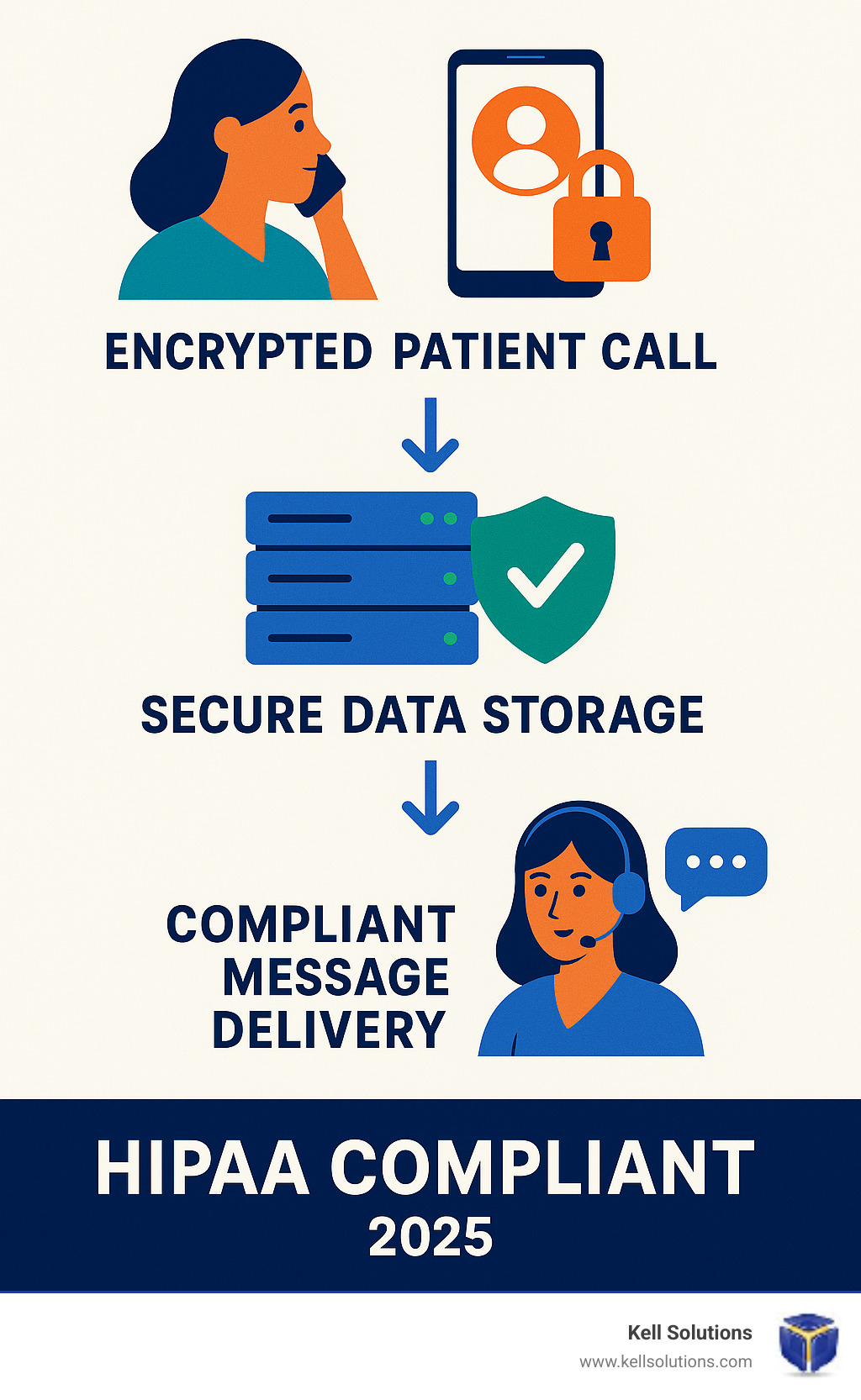
Conclusion
Choosing the right HIPAA compliant virtual receptionist service is crucial for protecting your patients' privacy and your practice's reputation. The services we've reviewed—from AI-powered solutions like VoiceGenie AI to fully human services like Ruby—each offer unique advantages depending on your practice's specific needs.
Next Steps for Your Orange County Practice
- Assess Your Current Risk: Evaluate whether your current answering service meets HIPAA requirements
- Define Your Needs: Consider call volume, hours of coverage, and special requirements like bilingual support
- Request Demonstrations: Most providers offer free trials or demonstrations
- Verify Compliance: Use our vetting checklist to ensure any service you consider meets all requirements
- Implement Gradually: Start with a pilot program to test the service before full implementation
Why VoiceGenie AI Stands Out for Orange County Practices
At Kell Solutions, we've developed VoiceGenie AI specifically to address the unique needs of healthcare practices. Our AI-powered HIPAA compliant virtual receptionist combines:
- Advanced natural language processing for medical terminology
- Instant response capabilities 24/7
- Seamless integration with existing practice management systems
- Significant cost savings compared to human-only services
- Scalability to handle varying call volumes
- Human backup for complex situations
The future of medical reception lies in intelligent automation that doesn't sacrifice compliance or patient care. VoiceGenie AI represents this evolution, providing practices with a solution that's both cutting-edge and completely secure.
Ready to transform your practice's patient communication while maintaining the highest compliance standards? More info about VoiceGenie AI Demo for Orange County
📚 About the Author
Gregg Kell is a seasoned digital marketing strategist and founder of Kell Web Solutions, Inc., based in Laguna Beach, California, helping professional service firms throughout Orange County grow through innovative AI-powered solutions like VoiceGenie AI. With over 20 years of experience in web development, lead generation, and business automation, Gregg is passionate about helping small businesses maximize growth and profitability through cutting-edge technologies.
When he's not helping businesses boost their bottom line, Gregg enjoys life by the beach in Laguna Beach, California, with his wife Debbie, celebrating over 40 years of marriage and entrepreneurial success.
👉 Explore More from Gregg for Orange County Practices:
VoiceGenie AI Demo for Orange County
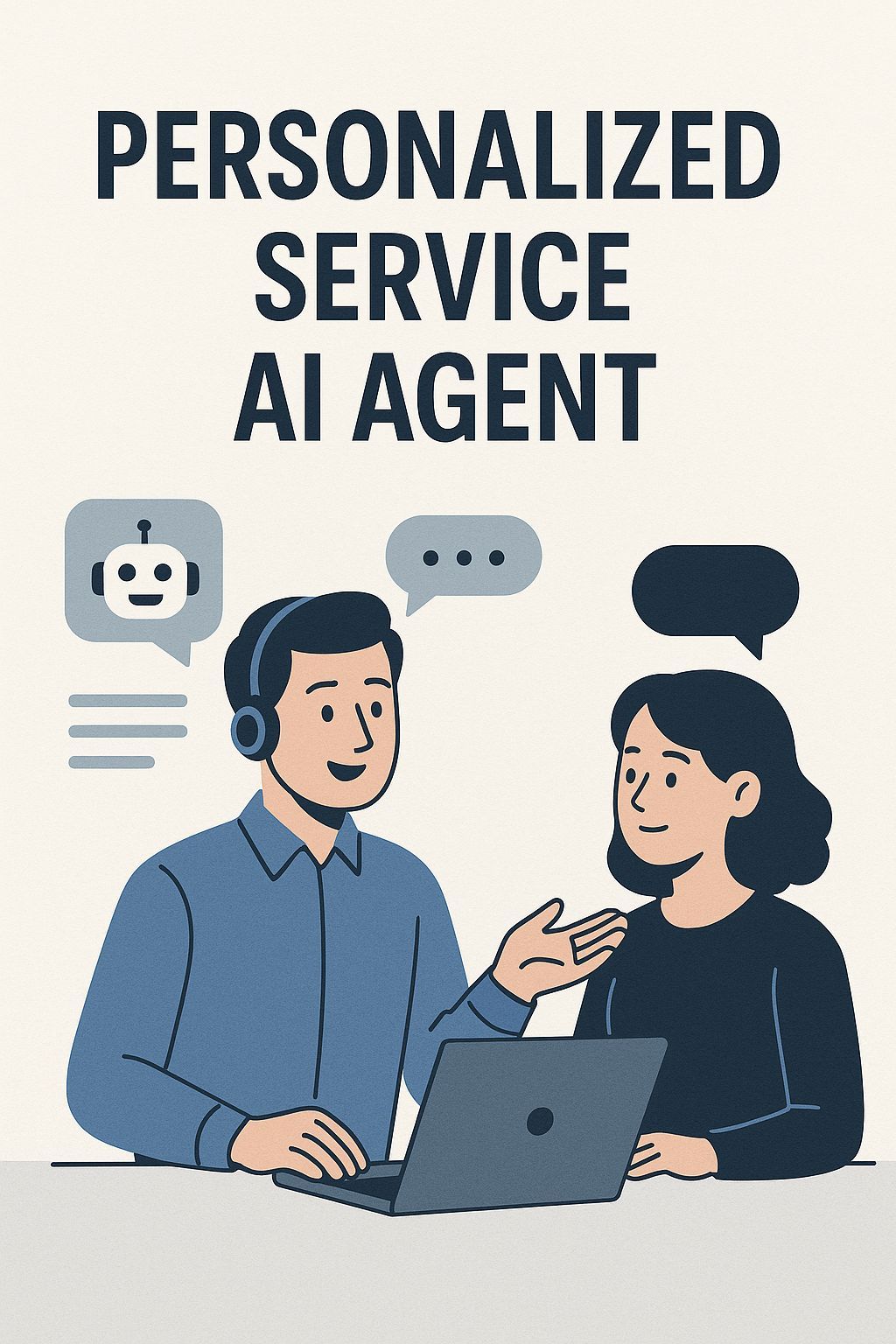

Orange County HVAC Google AI Overview Domination: 7 Proven Strategies to Capture Featured AI Results




